Programs
- GEM
- GEMSTONES
- OPALS
- Siebel Scholars
- J. Yang Scholarship
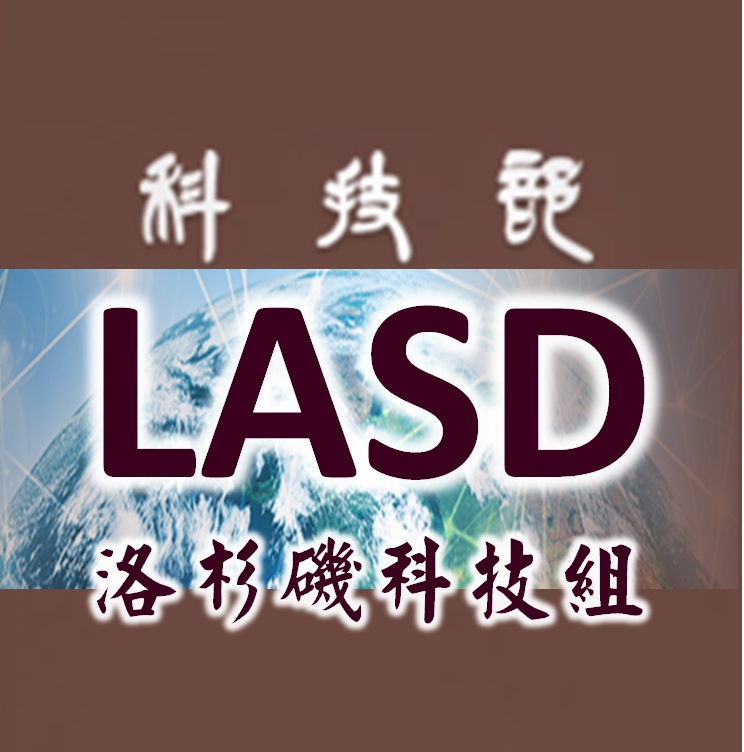

The J. Yang Family and Foundation provide $1.5 million over five years to fund these bilateral programs, including graduate and undergraduate scholarships, summer research internships, travel awards, and the annual bilateral symposium. UC San Diego is committed to a 100% match for the cost-sharing of these awards.
UC San Diego is privileged to partner with the J. Yang Family and Foundation to implement this most meaningful program. We are extremely pleased that we have funded eight outstanding students from Taiwan in Bioinformatics and Systems Biology, Chemistry, Computer Science & Engineering, Electrical & Computer Engineering, Neurosciences, and Structural Engineering. It is our strong belief that their study and research will be significantly aided by the J. Yang Scholarship, thus facilitating the completion of their outstanding education at UC San Diego for the advancement of their respective fields and improvement of the well-being of humankind.
For more detailed information on J Yang Scholarship Programs, click here: J. Yang Scholarship Awards Information.

I’m Chi-Yen (Lawrence) Lin, a recent graduate with dual Bachelor’s degrees in Business Analytics from San Jose State University. Originally from Taichung, Taiwan, I’ve developed a strong passion for using data to address real-world business challenges. During my final year, I represented San Jose State University in industry-academic projects with Coherent Corp. and the California High-Speed Rail Authority. At Coherent, I conducted market research on emerging optical and laser technologies to support strategic planning. With the California High-Speed Rail Authority, I analyzed workforce development data and used Tableau to visualize skill gaps, offering recommendations to align talent pipelines with industry needs. These experiences sharpened my technical and analytical skills and reinforced my commitment to making data both actionable and impactful. In Fall 2025, I will begin the Master of Science in Business Analytics program at UC San Diego’s Rady School of Management. I’m excited to deepen my knowledge in machine learning, predictive modeling, and business strategy—and to continue bridging the gap between academic insight and practical solutions as I pursue a career as a data-driven consultant.

Yun-Jun Lan is an upcoming Master of Quantitative Finance student at UC San Diego Rady School of Management. She completed her Bachelor’s degree in Finance at National Taiwan University (NTU), where she built a strong academic foundation and developed key skills in financial analysis, risk management, and programming. Fueled by a passion for numbers, she began her professional journey as a digital technology intern at ShinKong Bank, where she used Google Analytics to analyze customer data and optimize marketing strategies for a new mobile app. Yun Jun later joined Bank Sinopac’s Global Finance Department as a corporate banking intern, where she applied financial analysis skills to assess international companies, prepare credit reports, and conduct in-depth evaluations. More recently, she was designated to work at the Central Bank as a research assistant and assisted in collecting interest rates of various banks, then structuring them for integration into the Economic Database regularly for public use – an experience that enhanced her technical and data management capabilities. Beyond academics and research, Yun Jun is also passionate about social impact. She led initiatives to support educational access for rural children in remote areas, highlighting her commitment to inclusive development. Yun Jun aspires to obtain certification from the Society of Actuaries (SOA) in the future. She hopes to enhance financial stability and create meaningful social impact.

My current research interest lies in reconstructing and generating high-quality 3D content for AR/VR/XR by integrating computer graphics and foundation generative models. Currently, computer graphics techniques can result in photorealistic images and reasonable lighting effects like shadow and reflection. However, such techniques often require abundant information of 3D geometries, textures, and lighting, which might be difficult to satisfy in AR/VR/XR applications. Foundation generative models, on the other hand, have a strong prior knowledge of the real world but might generate unrealistic images due to the lack of physically modeling the image formation process in computer graphics. My goal is to utilize the advantages of both fields to fulfill the needs of generating realistic AR/VR/XR contents. One of my current projects, working with Prof. Manmohan Chandraker, is to edit the light sources and object materials inside single-view indoor scene images, which is very common in our daily life. In this project, we use traditional computer graphics to render clues for an image generative model and fine-tune the generative model to obtain the edited image. Our work can be beneficial for the development of augmented reality because we show that photorealistic editing of images can be completed with a minimum requirement of the input information - a single-view image. My future research interest will possibly be how to minimize the difference between real and synthetic objects and indoor layout. For example, a shelf in the real world will probably have books, vases, or other items stacked on each of its layers. However, current techniques focus on how to generate the shelf itself, but not with the items. To solve this problem, several questions should be answered first: How do we place these items in a reasonable way? What should the texture be like? What should the lighting look like? By solving these problems, we can bridge the gap between real and synthetic objects and eventually make AR/VR/XR more useful in our daily lives.

My name is Guan-Ling Chen, and I graduated from Tamkang University with a degree in Accounting in 2018. During my senior year, I participated in an accounting research project focusing on financial statement analysis, which deepened my interest in applying theory to real-world financial data. I passed the Taiwan CPA exam in 2019 and worked at KPMG Taiwan from 2019 to 2023. As a senior associate, I led audit teams and worked with clients in the manufacturing and transportation sectors, including companies preparing for IPOs. These experiences sharpened my accounting skills and taught me how to thrive in fast-paced, team-based environments. I chose to pursue the Master of Professional Accountancy at UC San Diego to strengthen my technical foundation and gain a global perspective. After graduation, I hope to work in the U.S. accounting field—particularly in the semiconductor or related industries—to gain hands-on experience before returning to Taiwan. I’m excited to join the program and look forward to learning from peers and faculty.

Jing-Ren (Nick) Yan received his B.S. degree in Electrical Engineering from National Taipei University of Technology in 2021 and his M.S. degree in Electronics and Electrical Engineering from National Yang Ming Chiao Tung University (NYCU) in 2024. He will begin his Ph.D. in Electrical and Computer Engineering (ECE) at UC San Diego in Fall 2025. In recognition of his academic excellence, Nick received the IEEE Taipei Section Best Master Thesis Award and was named an Outstanding Graduate by the ECE Department at NYCU. His research on a 2.4 GHz wireless energy-harvesting CMOS chip was presented at the 2024 IEEE RFIC Symposium and selected as a Student Paper Award Finalist. Nick’s research focuses on robust RF energy harvesting, with additional interests in analog and RF circuit design. He has also been awarded the UCSD Centaur Graduate Fellowship. As a student from Taiwan, he is honored to be considered for the J. Yang Scholarship, which supports his pursuit of innovative, energy-efficient technologies and his commitment to fostering global research collaborations.
Po-Yu Hsu is an incoming Master of Quantitative Finance student at UC San Diego’s Rady School of Management. He earned his bachelor’s degree in financial engineering and actuarial mathematics from Soochow University, graduating with distinction in the Finance Program. Through academic projects, he developed strong skills in financial analysis and valuation by applying investment theories to real-world stock selection, effectively bridging theory and practice. His internship at GE Vernova’s finance department further expanded his experience, involving financial reporting, budgeting, and complex data interpretation. This role deepened his understanding of global financial systems and reinforced his passion for using data-driven insights to optimize financial strategies and support smarter investment decisions. Beyond academics, Po-Yu was actively involved in an international volunteer organization, teaching Mandarin to Indonesian students. This cross-cultural experience strengthened his commitment to educational equity and broadened his perspective on the importance of inclusivity and social responsibility in both education and finance. At Rady, Po-Yu looks forward to collaborating with faculty and peers to develop practical, innovative financial models with a strong focus on sustainable investment practices. His long-term goal is to create investment solutions that not only deliver strong financial returns but also promote social impact, contributing to a more inclusive, responsible, and resilient global financial landscape.

Tsai-Hsuan (Sherry) Liu is a first-generation college student from Tainan, Taiwan. She earned her Bachelor’s degree in Visual Arts with a major in Design from the University of Taipei and studied Management as an exchange student in the United States. Her growing interest in user experience design stems from its potential to improve access to care, especially in mental health. Sherry was deeply affected by her mother’s breast cancer journey, where she saw firsthand the emotional toll of limited mental health support. Motivated by this experience, she interviewed patients and care providers and prototyped a digital platform aimed at fostering peer support for breast cancer patients. She hopes to further develop this idea into an evidence-based intervention through her training in public health. In Fall 2025, Sherry will begin her Master of Public Health at UC San Diego, concentrating on public mental health and human-centered design. The J. Yang Scholarship would allow her to fully focus on her studies and research, enabling her to grow as a public health practitioner and contribute to mental health solutions across diverse communities.

I will pursue a Master of Professional Accountancy at UC San Diego’s Rady School of Management in Fall 2025. Originally from Taipei, Taiwan, I earned my Bachelor’s degree from National Taipei University. After graduation, I worked for five years, including four years at PwC Taiwan as a Senior Associate in audit services, where I collaborated with multinational clients and supported IPO-readiness projects. One achievement was leading a cost-management improvement project for a manufacturing client, which helped the company restore positive gross profit. These experiences deepened my interest in integrating accounting with analytics to solve complex business challenges, which also inspired me to pursue graduate studies and clarify my career direction. Looking ahead, I aim to develop my career in consulting, particularly serving multinational technology companies. At PwC, I primarily worked with semiconductor clients and became passionate about helping them address R&D intensity, global tax complexity, and supply chain risks. Recognizing the increasing intersection between finance and technology, I aim to help companies optimize their financial strategies, strengthen internal controls, and leverage data analytics to support decision-making in this fast-evolving industry, through graduate studies and with the support of the J. Yang Scholarship, I am committed to transforming business operations through strategic financial insight and analytics. I hope to leverage my expertise to guide companies toward sustainable growth in the global economy.

I plan to explore how hardware acceleration can improve the efficiency of genome sequencing. My focus is on designing high-performance computing architectures using ASICs, FPGAs, GPUs, and high-level synthesis tools. I am particularly interested in building systems that can handle the increasing demands of sequencing data with better speed and energy efficiency. By combining architectural innovation with practical hardware design, I hope to develop solutions that make large-scale genome analysis faster and more accessible. Through my Ph.D. research, I aim to bridge the gap between algorithm design and hardware implementation to push the limits of sequencing computation.

Yuan-Shuo (Ted) Yu will begin his Master’s in Business Analytics at UC San Diego in Summer 2025. He holds a Bachelor’s degree in Finance and International Business from Fu-Jen Catholic University. His interest in data began with a course on Financial Data Analysis and Intelligent Trading, where he focused on leveraging Python to design a trading strategy and build an alert system to monitor market conditions. Ted was also fascinated by the shifting odds in football betting, which led him to realize that data is more important than intuition. This curiosity evolved into a passion for uncovering patterns to inform smarter decisions. At Kantar, Ted deepened this passion by helping brands solve real-world business problems through consumer insights. In one notable project, he contributed to repositioning a struggling product by identifying a hidden benefit through behavioral analysis—an experience that highlighted the power of combining data with creativity to drive meaningful impact. With Rady’s strong focus on technology and real-world applications, Ted will sharpen his technical skills while learning how to leverage them across functions and evolve into a professional who can deliver significant, measurable outcomes through data. Ultimately, Ted’s goal is to make significant contributions to the financial industry through analytics and innovation.
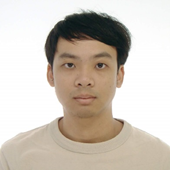
Ching-Chi Hang is an upcoming Ph.D. Student at UC San Diego's Department of Chemistry and Biochemistry. He earned his bachelor’s degree from the Department of Chemistry at National Taiwan University in 2021 and served as a research assistant at the Institute of Atomic and Molecular Sciences, Academia Sinica (IAMS) from 2021 to 2024. During his time at IAMS, Ching-Chi worked with Prof. Liang-Yan Hsu on the role of coherence in molecular junctions through theoretical studies. These research experiences raised his profound interest in the fundamental principles governing chemical systems, e.g., the electron transport mechanisms in molecular junctions. During his graduate studies, Ching-Chi is eager to delve deeper into theoretical research on chemical systems. He aims to uncover underlying principles and predict novel phenomena through computational simulations and theoretical frameworks. With his solid academic background and research experiences, Ching-Chi is poised to make contributions to the field of theoretical chemistry at UC San Diego.
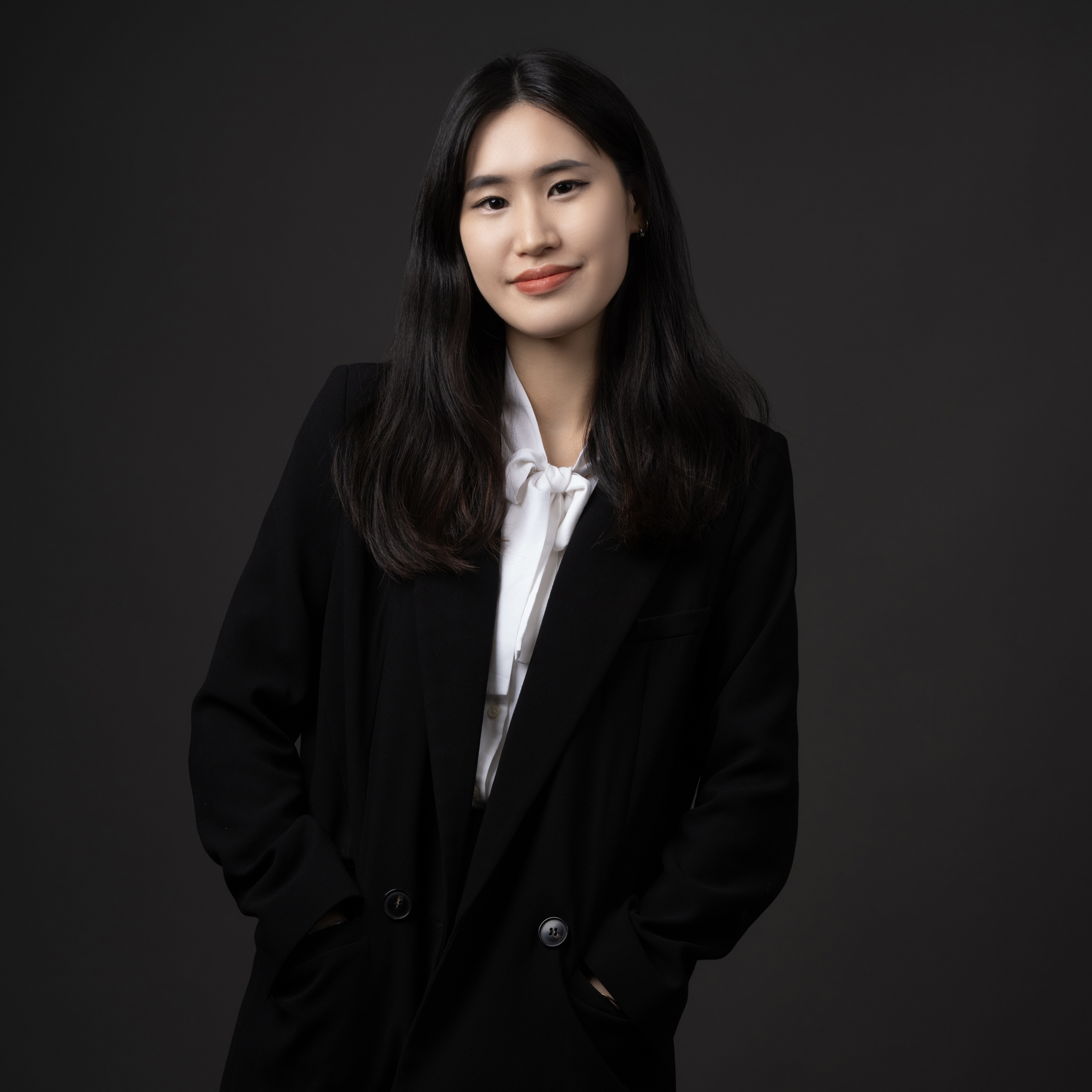
Emma Madison Wu will be joining the MS business analytics program at UC San Diego Rady School of Management starting in the summer of 2024. She grew up in Taipei and received a bachelor’s degree in fashion marketing from Fu-Jen Catholic University. During college, she conducted several research about the fashion industry. In May of 2024, she presented her bachelor’s thesis “Exploring Consumer Behaviors between Eastern and Western Countries in Sustainable Fashion” and won the distinctive award for a BS degree thesis. In the era of globalization nowadays, companies need to modify their marketing strategies based on the target consumers’ cultural preferences, habits, and thoughts. In the future, Emma will continue exploring the differences and characters between Eastern and Western cultures, aiming to assist the company in overcoming cultural barriers, facilitating smooth cooperation with international partners, and even expanding its operations. Through dedication and expertise, Emma envisions contributing to the growth and success of the company while fostering global collaboration and understanding.
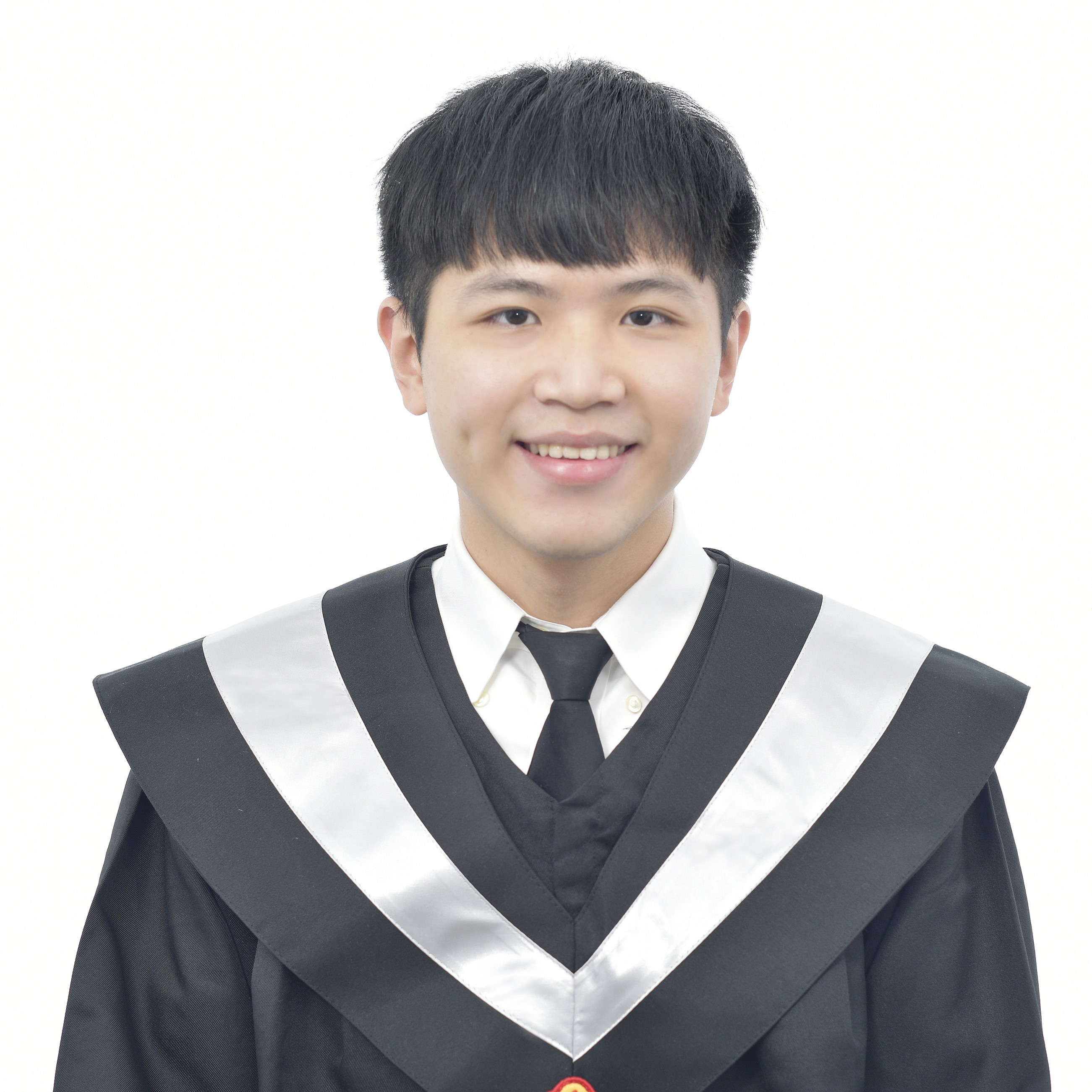
Chen-Fan (Jeffery) Lee is going to be a Master’s student in Business Analytics at UC San Diego Rady School of Management starting Fall 2024. Originally from Miaoli, Taiwan, Jeffery earned his Bachelor’s degree in Finance from National Taiwan University. His academic journey ignited a passion for data during his participation in the Fintech-Machine Learning and Text Mining course, where he learned to apply advanced data analysis techniques across various scenarios. While working as an Operating Data Intern at Nan Shan Life Insurance Company, he used the Scikit-learn tools in Python for a machine-learning model that identified the characteristics of defaulting salesmen and utilized RFM analysis with customer data visualization to craft sales strategies. The experiences of tackling real-world business problems with data-driven solutions have fueled his goal to excel in business analytics. Jeffrey proved his leadership skills and commitment to community engagement as the President of the NTU Childhood Cancer Service Club. In grad school, he is eager to refine his analytical skills and develop leadership qualities to be an accomplished data scientist. He hopes to leverage his machine learning and fintech experience to bring innovative solutions within the finance and technology sectors.
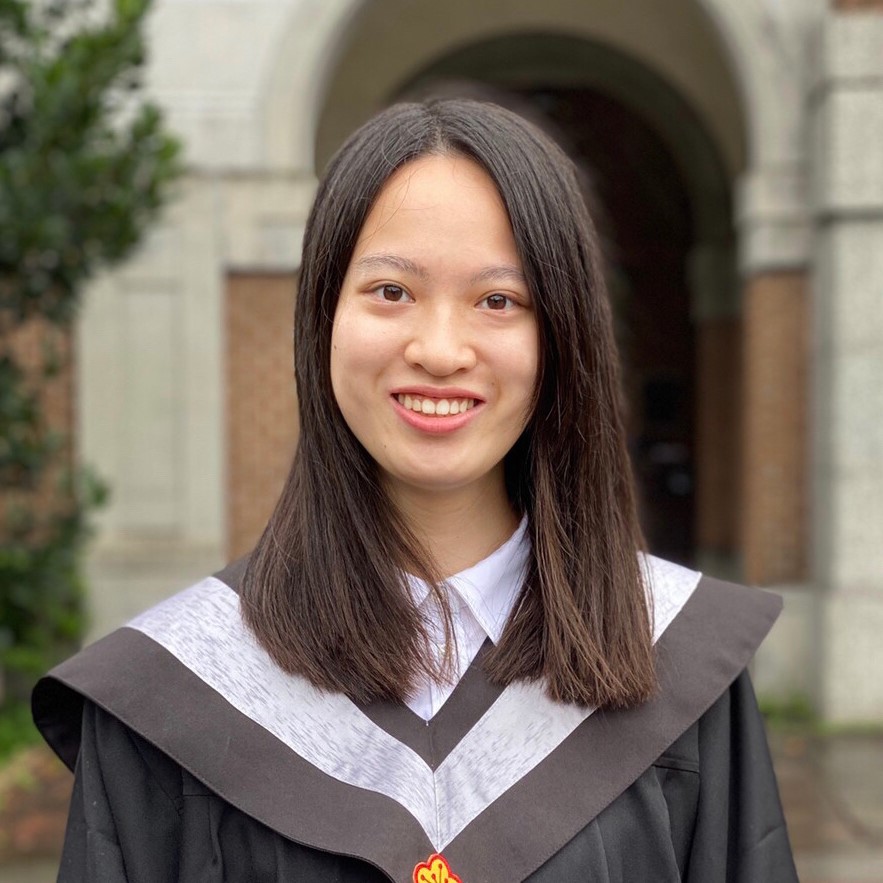
Shao-Yu Chu is an upcoming Ph.D. student in Computer Science and Engineering at UC San Diego. Born and raised in Taiwan, Shao-Yu earned both her bachelor's and master's degrees from National Taiwan University. During her undergraduate studies, she worked with Professor Mike Y. Chen on the interaction of virtual reality and Human-Computer Interaction and published a first-author paper at the premier academic conference for HCI research, titled “MotionRing: Creating Illusory Tactile Motion around the Head using 360° Vibrotactile Headbands (UIST’21)”. Subsequently, she pursued her master’s studies in software engineering under Professor Jonathan Lee. As Shao-Yu embarks on her Ph.D. journey at UC San Diego, she aspires to leverage her expertise in HCI and Software Engineering to help programmers build trustworthy software/hardware systems. Imagine an independent software developer of a smart camera claiming that they respect users' privacy and store users' data securely. How can outsiders validate this claim, given that the products are often proprietary black boxes? How can the developer gain the trust of users? Her research will enable individuals and communities to engage with technology more confidently and securely by inventing new paradigms for programmers to build systems. The J. Yang Scholarship would allow her to fully dedicate herself to her studies and research, and make significant contributions to technology and the digital landscape.
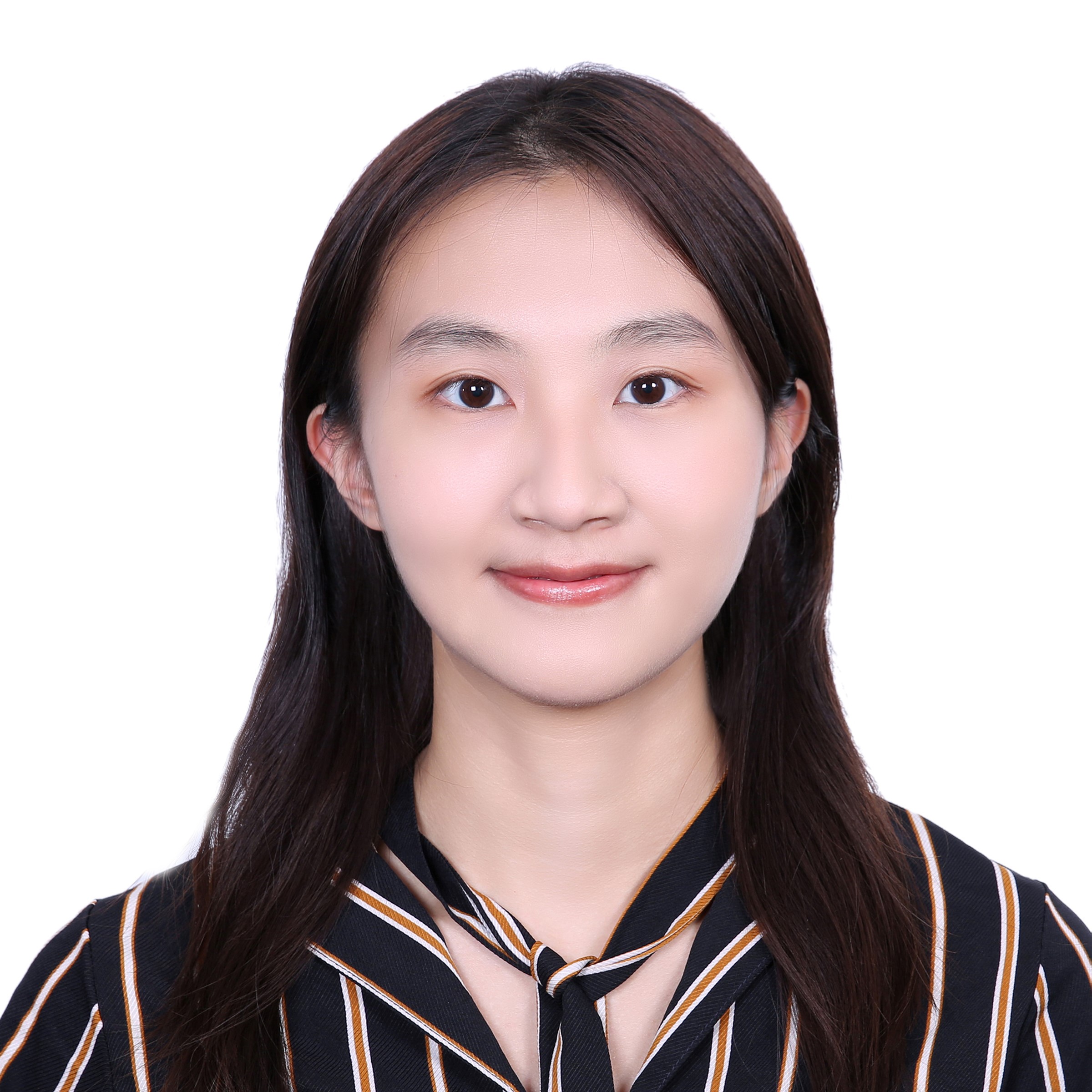
Tien-Yuan (Iris) Chen is a prospective PhD student in the History Department at UC San Diego, beginning in Fall 2024. She earned her Bachelor’s and Master’s degrees in History from National Taiwan University, where she researched how individuals asserted their identities within specific historical contexts. Her Master’s thesis contributes to feminist chronology by rectifying the historical misidentification of Anne Knight (1786-1862), a nineteenth-century British feminist. Additionally, her Bachelor’s thesis explored the pamphlets of British abolitionist Elizabeth Heyrick (1769-1831), revealing her strategies for mobilizing social networks. During her previous academic journey, Tien-Yuan has developed her skills in analyzing primary English, French, and Chinese sources, navigating from national to transnational perspectives to facilitate broader global comparisons. She has also gained extensive research experience as a research assistant at National Taiwan University and Academia Sinica. Tien-Yuan’s doctoral research will investigate the process of universalizing women’s rights from their Euro-American origins to China as a globally justifiable concept from the late nineteenth century to the first half of the twentieth century. Tien-Yuan seeks to contribute scholarly insights that deepen our understanding of the complex global dynamics shaping our modern world by specializing as a historian.
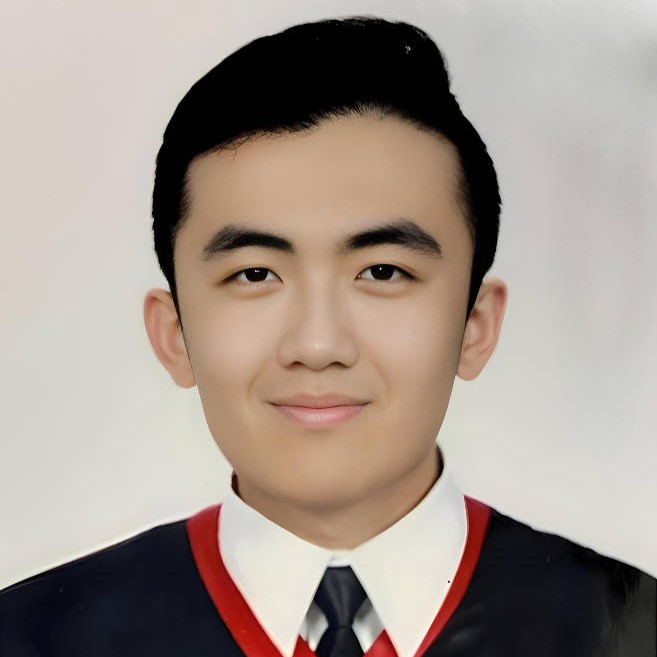
TTsung-Han Lu will be joining the Department of Electrical and Computer Engineering at UC San Diego as a PhD student starting in the Fall of 2023. Born and raised in Taipei, Taiwan, Tsung-Han earned his M.S. in Power Mechanical Engineering from National Tsing-Hua University, where he collaborated with Professor Gwo-Bin Lee and wrote his master's thesis on cancer detection. After graduating, he joined TSMC as an R&D engineer specializing in N2 design. His prior experience in tumor detection and expertise in electronics acquired through his professional background can significantly contribute to future research endeavors. Currently, Tsung-Han is particularly interested in developing more precise clinical detection instruments. He hopes that through the research on such devices, diseases can be detected and treated promptly in the future. Furthermore, Tsung-Han aims to leverage his interdisciplinary knowledge in electrical engineering and biology to create improved therapeutic instruments for future generations.
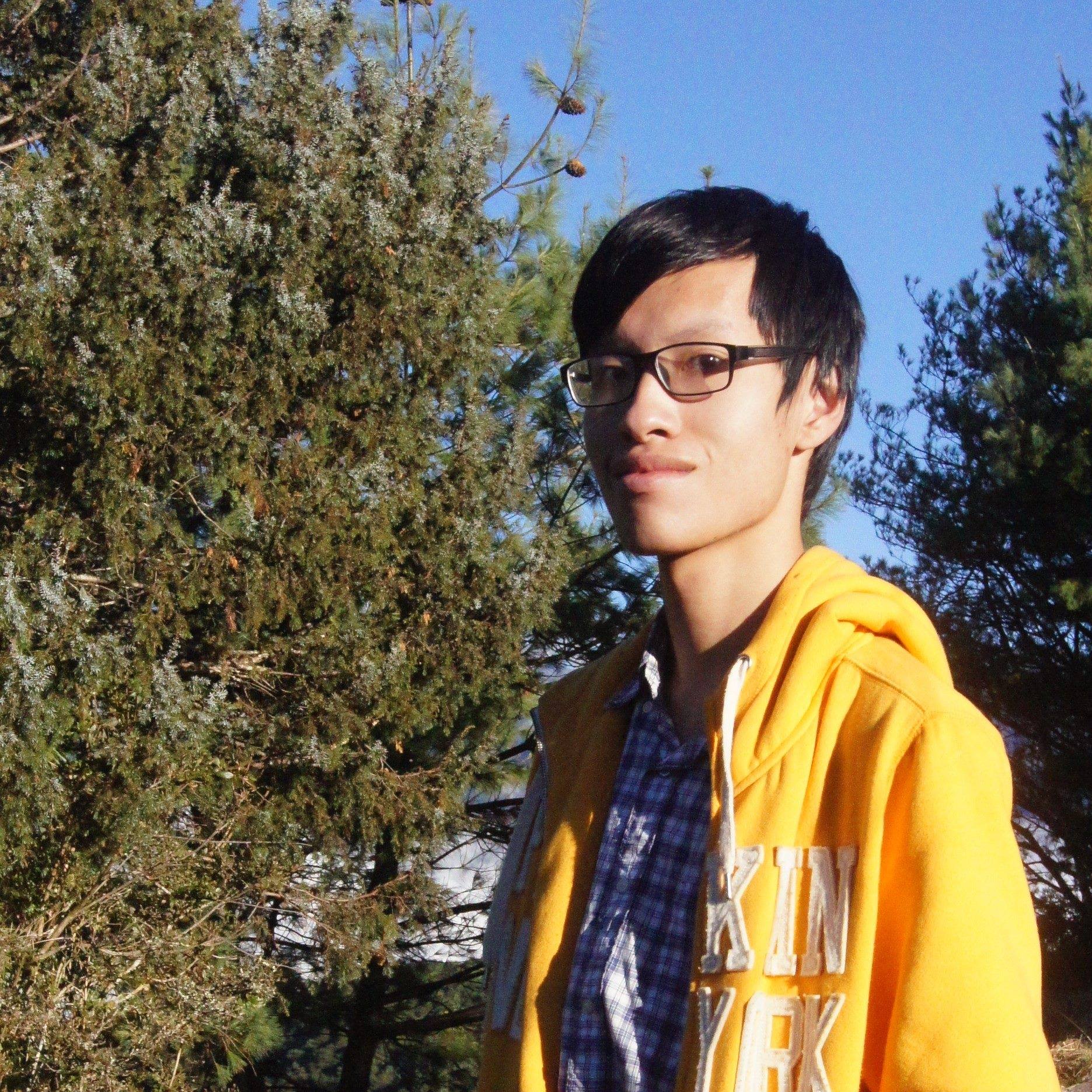
Yen-Hsing Lin will pursue his Ph.D. in the Department of Astronomy at UC San Diego. He completed his undergraduate and master's degrees at National Tsing Hua University (NTHU), majoring in physics and astronomy. During his undergraduate years, Yen-Hsing worked with Dr. Hiroyuki Hirashita at the Academia Sinica Institute of Astronomy and Astrophysics (ASIAA), focusing on interstellar dust in high-redshift galaxies. In his master's program, he worked with Prof. Hsiang-Yi Karen Yang on numerical simulations of jets from supermassive black holes in galaxy clusters. These efforts led to the publication of two first-author papers, a co-authored paper, and the receipt of ten awards. Yen-Hsing is also actively engaged in public outreach, having co-founded the science communication team "EASY" in 2017, aiming to share the beauty of astronomy with the public through social media and publications. He has also held leadership positions in the amateur astronomy community, including serving as the supervisor of the Astronomy Club Union of Universities in Taiwan (ACUUT). In his Ph.D. studies, Yen-Hsing aims to continue exploring the interplay among the various physical mechanisms in the galactic ecosystem through advanced numerical simulations, contributing to the field of galaxy evolution and beyond.
Yi-Hung (Alex) Lee will pursue a PhD in the Shu Chien-Gene Lay Department of Bioengineering at UC San Diego starting Fall 2024. He grew up in Taipei, Taiwan, and received a Bachelor’s degree in Bioengineering: Biotechnology from UC San Diego. Through his undergraduate studies, he gained invaluable experience in diverse realms, including cancer biology, genome engineering, and stem cell research. Yi-Hung worked as an undergraduate researcher in Dr. Mark Fuster’s lab at VA San Diego Medical Center. His work emphasized the biophysical aspects of the tumor cell glycocalyx, investigating the downstream effects after disrupting the integrity of the cancer cell membrane using a pulsed magnetic field. During his last year of undergraduate, he worked on his senior project in Dr. Karl Wahlin’s lab at Shiley Eye Institute. In this project, he implemented CRISPR activation (CRISPRa) systems in human pluripotent stem cells (hiPSCs) to target transcription factors and promote differentiation into retinal neurons. With his multidisciplinary research experience, Yi-Hung will delve into the development of genome engineering toolsets and their application to regenerative medicine during his PhD studies at UC San Diego. Ultimately, his long-term goal is to enable human gene and cell-based therapeutics and advance the healthcare system.
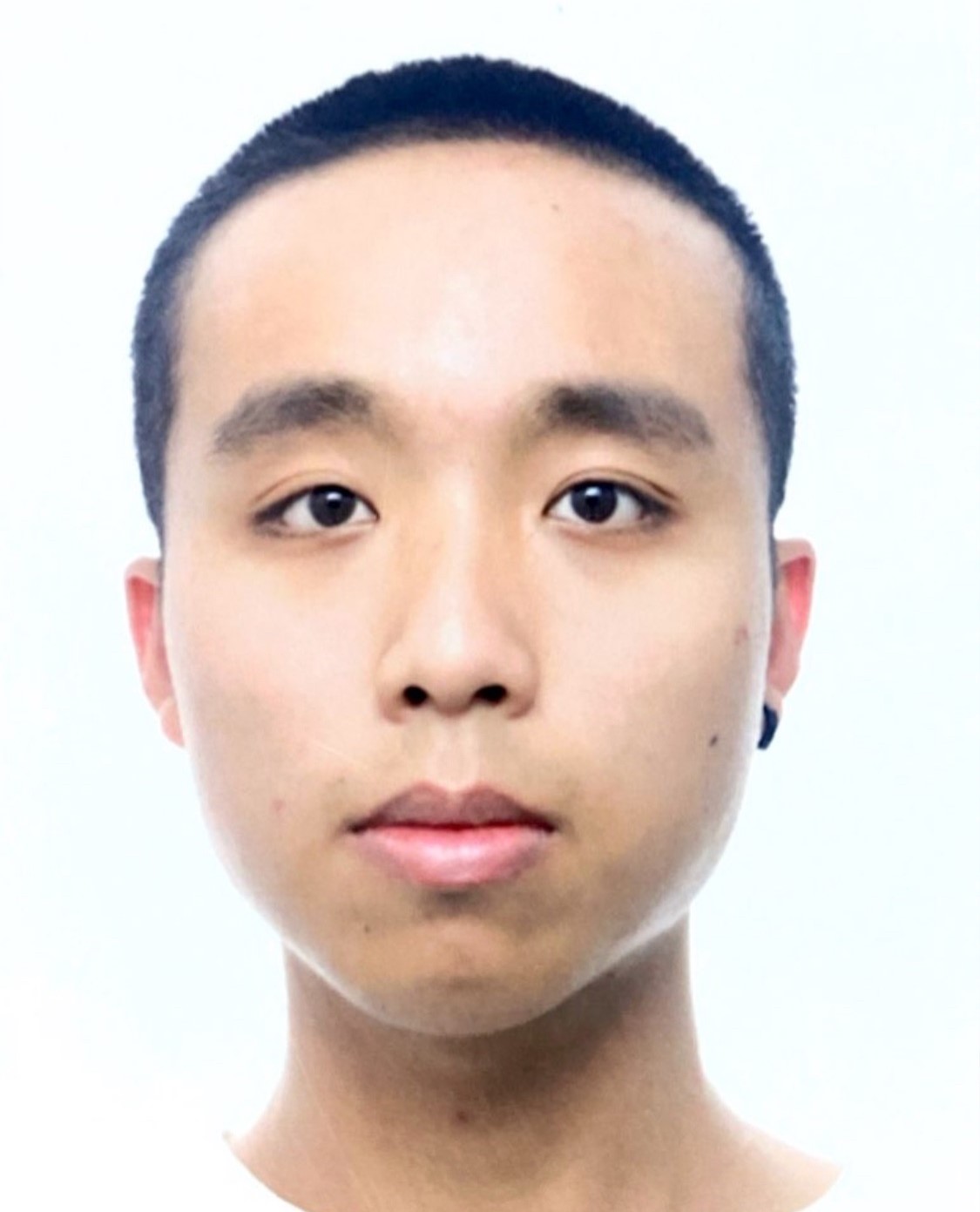
Yu-Hsien Lee is an upcoming Master of Quantitative Finance student at the UC San Diego Rady School of Management. He earned his Bachelor's degree in Finance and fulfilled all the requirements of the Business Analytics Program at National Taiwan University (NTU). Through his research assistantships with Professors YAN-ZHI WANG and BAI-DA SHI, he acquired a robust understanding of model construction and quantitative methods. Additionally, a 10-month internship at the Development Bank of Singapore (Finance Group) provided him with practical insights into the finance industry. Through these experiences, he developed a keen interest in derivative pricing, prompting him to undertake multiple Finance Department graduate-level courses and fundamental courses from Mathematics Department during his senior year. As a graduate student, he aims to first comprehend how classic models address issues such as Jump Diffusion, Volatility Smile, and Leptokurtic feature of empirical data, and then explore the application of machine learning to the pricing of exotic derivatives. Beyond academics, Yu-Hsien was a member of the NTU Golf Varsity and served as the Vice President of the NTU Golf Club. He has also been actively involved in volunteer work, participating in the International Companions for Learning (ICL) and the Vision Project in Nepal. Driven by a passion for Japanese culture, he has self-taught Japanese to an advanced level (JLPT N2) and participated in several homestay experiences in Japan.
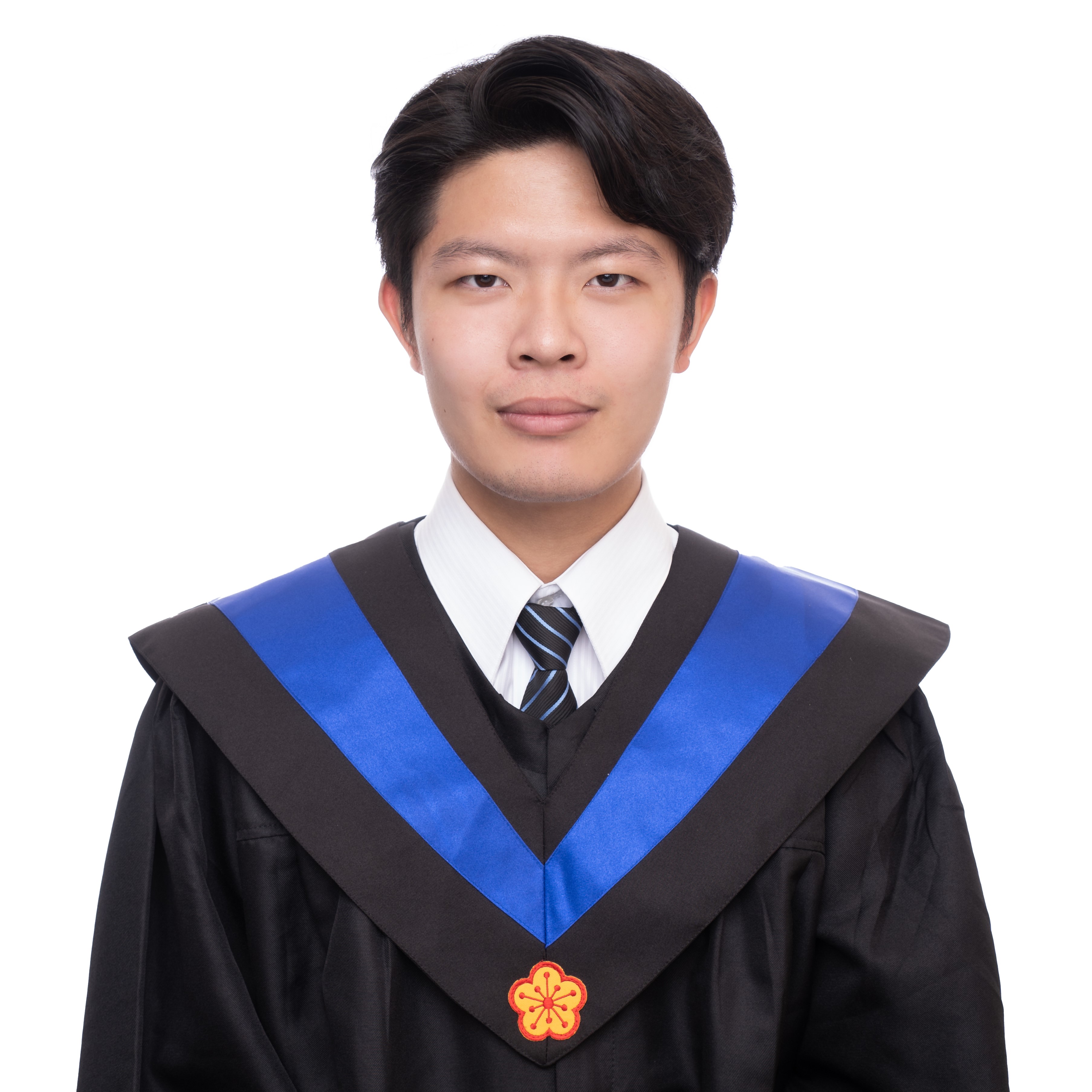
Yun-Chia Yu is an incoming Ph.D. student in the Department of Electrical and Computer Engineering at UC San Diego. He grew up in Taichung, Taiwan and earned his B.S. degree in electrical engineering from National Taiwan University in 2023. During his undergraduate studies, Yun-Chia developed a keen interest in machine learning and digital circuit design. In Prof. Tsung-Te Liu’s lab, he researched and verified an energy-efficient keyword-spotting system. In Prof. An-Yeu Wu’s lab, he focused on reducing hardware cost of Vision Transformer. This included energy-aware weight pruning for computing-in-memory architecture and retraining-free constraint-aware token pruning. As a research intern at Industrial Technology Research Institute (ITRI), he analyzed and identified the underlying hindrances to the energy efficiency of event-based spiking neural network processors. He has a paper accepted at the International Symposium on Circuits and Systems (ISCAS) conference in 2024. His research interest focuses on algorithm-hardware co-design for machine learning acceleration. The goal of his Ph.D. study is to find a new solution for machine learning computing through the vertical integration of algorithm, architecture, and circuit design.
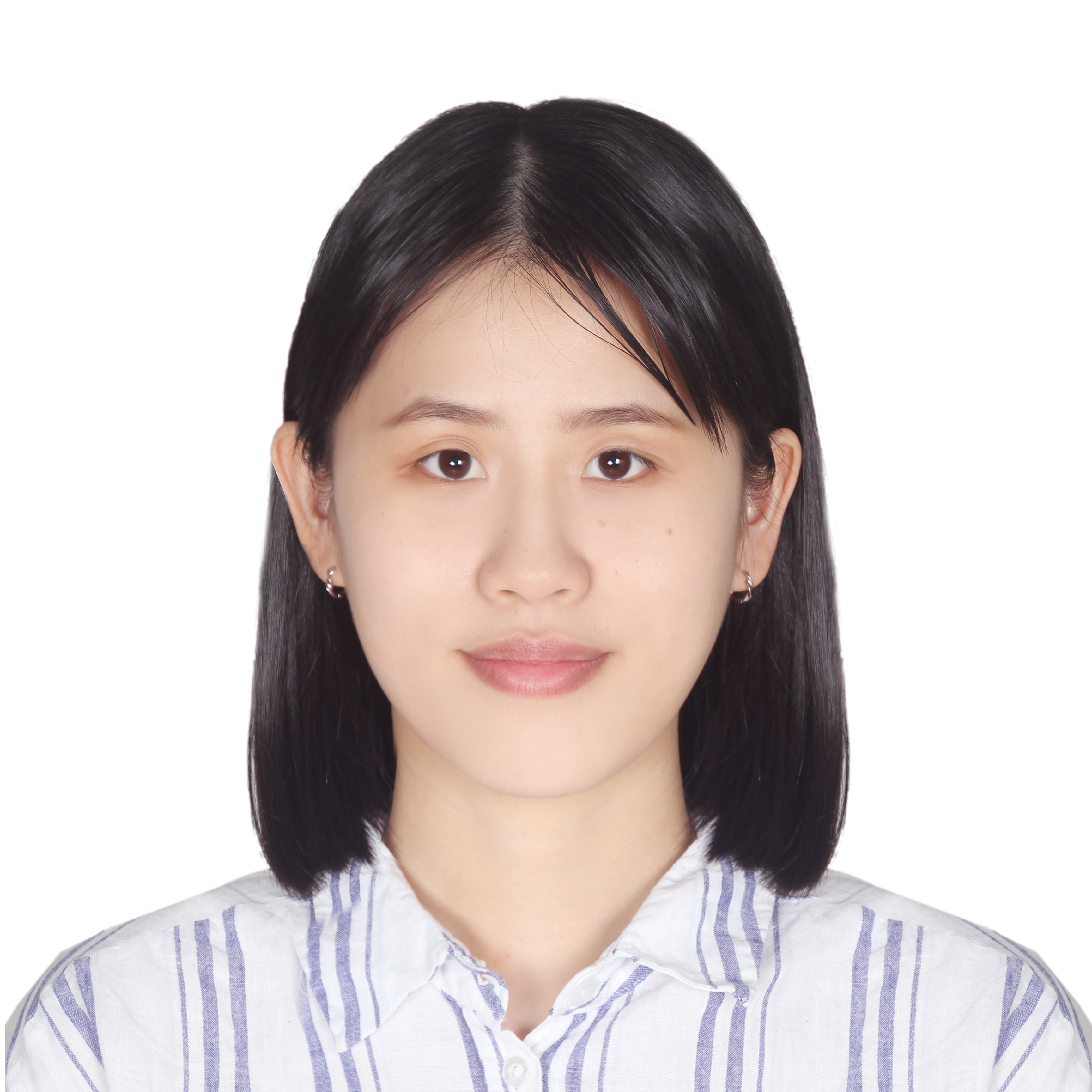 Yun-Jheng Chiu
Yun-Jheng ChiuYun-Jheng (Celia) Chiu will pursue a Master of International Affairs in the School of Global Policy and Strategy at UC San Diego starting Fall 2023. She grew up in Taipei Taiwan, and received the Bachelor’s degree in English from National Taiwan Normal University (NTNU). After graduation, she successfully acquired her high school teacher certificate. However, she discovered her greater passion for solving unprecedented global challenges and subsequently shifted her path to work as an international news journalist in Business Weekly, the most-read business magazine in Taiwan. Here, she does in-depth reporting on how international issues are connected to Taiwan, such as COVID-19 or the Russia-Ukraine War, which has inspired her to focus on how to address urgent international problems, especially considering the Indo-Pacific Region as an arena of world geopolitical competition today. During her graduate study, her goal is to become capable of effectively adapting to the sea change brought by heating US-China competition and uncertainty in the global economic outlook. In the long term, she aims to be able to translate geopolitical changes to impact on markets, assist both private and public sectors to strike an optimal balance between risk and security while addressing social concerns, and to further create a sustainable economic future in the Indo-Pacific Region.
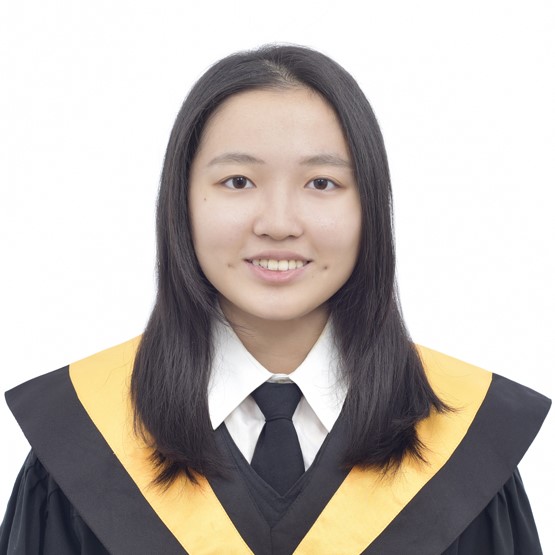 Chia-Ying Tsai
Chia-Ying TsaiChia-Ying (Ivy) Tsai will be joining Department of Chemistry at UC San Diego as a PhD student from Fall 2023. She grew up in Kaohsiung, Taiwan and received the MSc and BSc degree in Chemistry from National Taiwan University. During her undergraduate and master’s career, she worked with Prof. Jye-Shane Yang to develop both organic and organometallic functional supramolecular luminescent and energy storage materials. From these experiences, she has developed broad interests ranging from organometallic complexes to self-assemblies’ behaviors. Currently, she works as a teaching assistant and has cumulative two years teaching assistant experience in undergraduate courses and organic chemistry lab. In grad school, she is eager to explore the infinite possibilities of inorganic chemistry including innovative applications and the underlying principles in La Jolla.
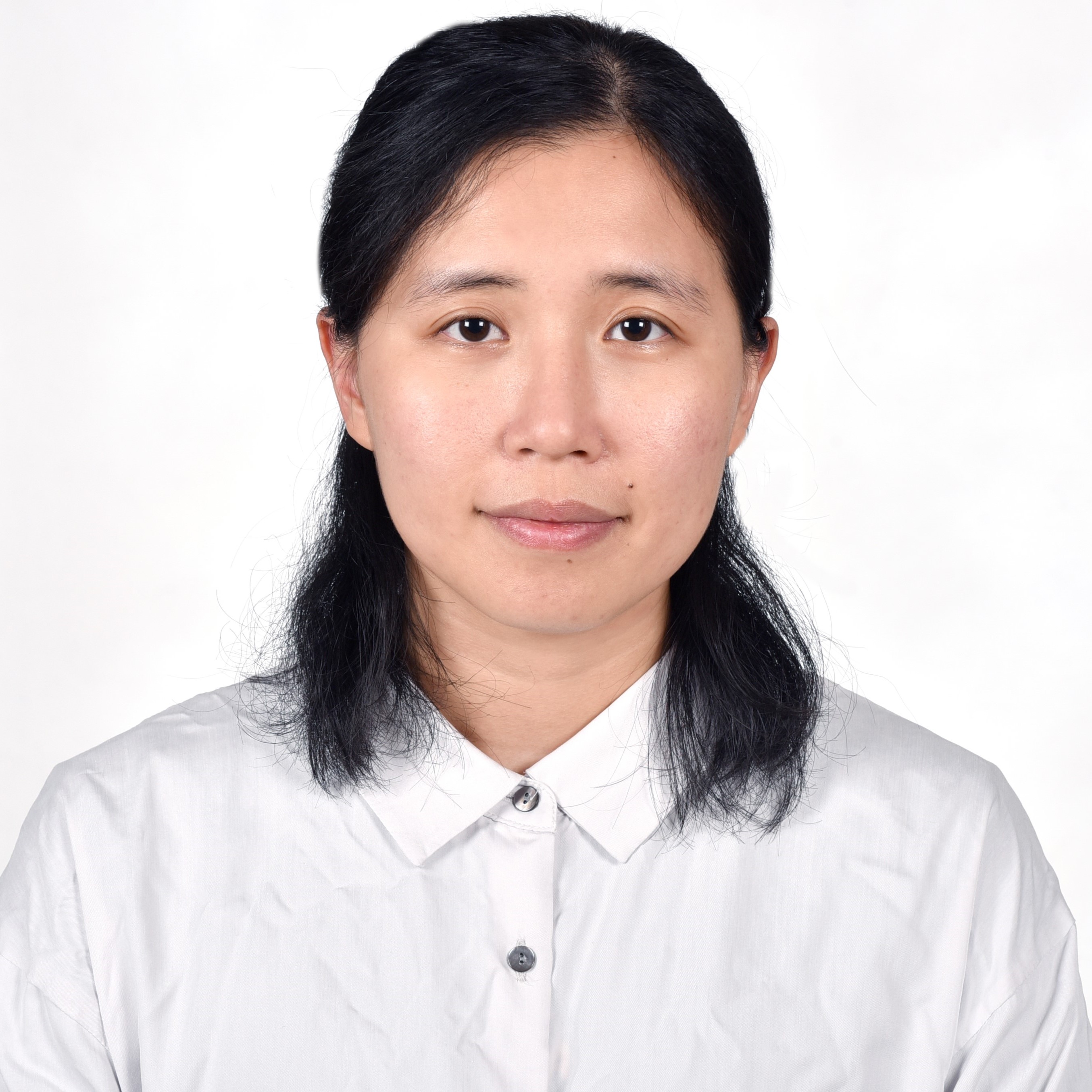 Chen Hsiao
Chen HsiaoChen (Jan) Hsiao is a newcoming PhD student in Biological Science at UC San Diego. She received her Bachelor’s and Master's degrees in Animal Science and Technology from National Taiwan University. During her Master's program, she was awarded the Chi-Seng Water Management Research & Development Foundation scholarship and worked as a research assistant at both National Taiwan University and Academia Sinica. Her research interests are focused on molecular evolution and experimental evolution. At National Taiwan University, she conducted research on population genetics and conservation genetics of Taiwan endemic mammals using microsatellite molecular markers with Professor Yu-Ten Ju. At Academia Sinica, she worked with Professor Isheng Jason Tsai on researching phenotype variation and hybridization of S.cerevisae discovered in forests in Taiwan. In her PhD program at UC San Diego, she plans to study evolutionary systems biology. She hopes to apply her previous research experience to understand how complex biological systems have evolved and how these systems function.
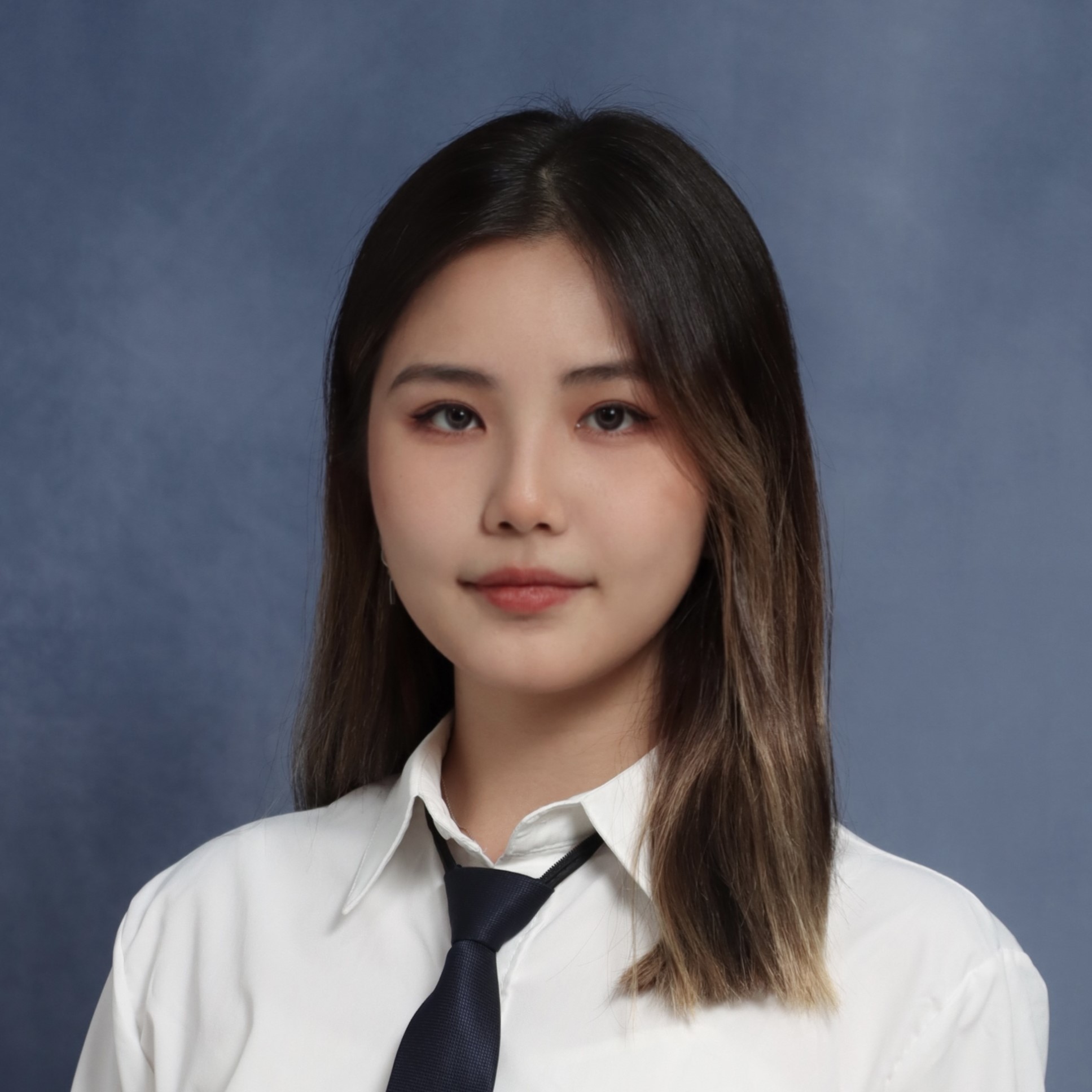 Jia-Huei Liou
Jia-Huei LiouJia-Huei (Mandy) Liou is an upcoming Master’s student in Business Analytics at UC San Diego Rady School of Management, starting in Summer 2023. Hailing from Hsinchu, Taiwan, Mandy holds a Bachelor’s degree in International Business from National Taiwan University. During her time in college, her passion for data emerged while auditing Programming for Business Computing, which focused on leveraging Python for effective business operations and decision-making. Mandy developed strong leadership skills serving as the vice president of the Harvard College in Asia Program Taipei, as well as the president of the NTU Hsinchu Area Alumni Association. Mandy’s professional journey led her to work at Partipost, a social media crowd marketing startup in Taiwan. There, she witnessed first-hand the immense potential of data analytics in the advertising industry, solidifying her determination to contribute to its advancement. At Rady, Mandy aims to enhance her data analytics skills and deepen her understanding of the intersection between technology and business. She envisions a future where she leads the charge toward a more innovative, prosperous future for the advertising industry in Taiwan. fellowship.
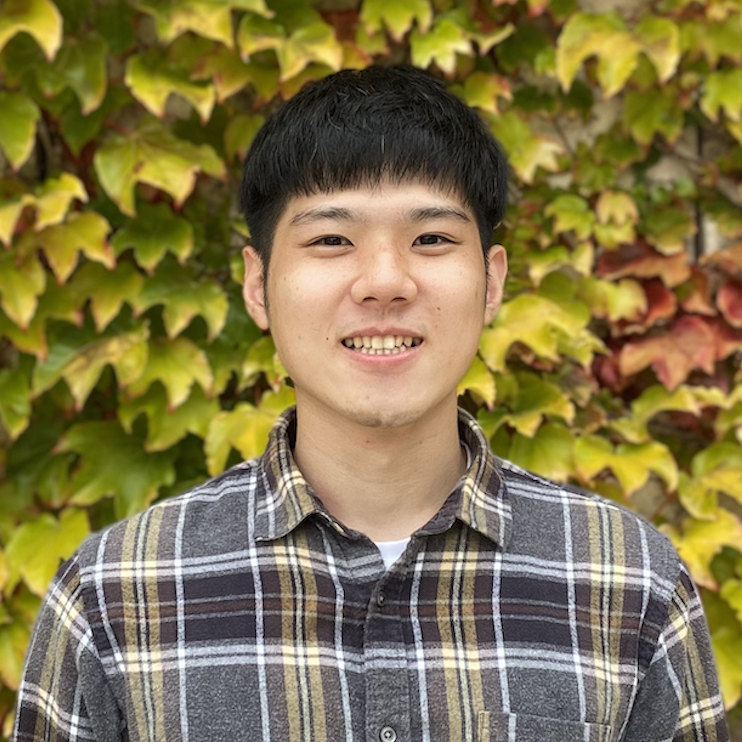 Kuan-Hung Yeh
Kuan-Hung YehKuan-Hung (Peter) Yeh is a first-year Ph.D. student in Bioinformatics and Systems Biology at UC San Diego, working alongside Prof. Tiffany Amariuta. Born and raised in Taipei, Taiwan, Kuan-Hung earned a B.S. in Public Health from National Taiwan University and an M.S. in Biostatistics from UCLA, where he worked with Prof. Bogdan Pasaniuc. As a quantitative researcher in the biomedical field, he is passionate about leveraging the power of molecular diagnostics to combat diseases. Further, with a deeply ingrained scientific philosophy to promote "Health for All”, he aims to transform Cancer Care and revolutionize Public Health by translating data into actionable insights. Currently, Kuan-Hung is particularly interested in developing novel statistical approaches to integrate genetic data across millions of individuals with diverse ancestries and enhance the generalizability of disease risk models, which is necessary for the clinical implementation of personalized preventive medicine.
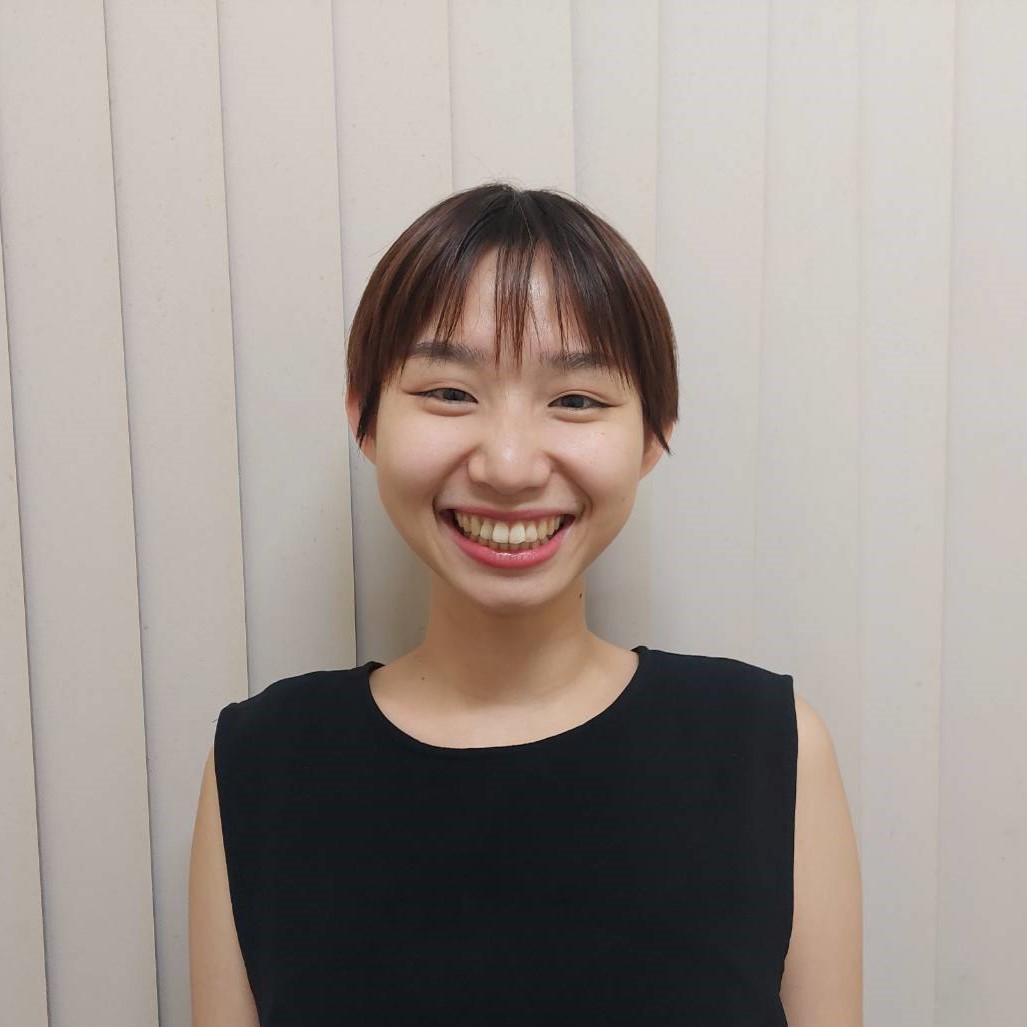 Tzu-Hsuan Feng
Tzu-Hsuan FengTzu-Hsuan Feng is an upcoming Ph.D. student at UC San Diego's Department of Chemistry and Biochemistry, building on her solid foundation with a B.S. degree in chemistry from National Taiwan University in 2021. During her undergraduate studies, Tzu-Hsuan embarked on a journey of exploration, serving as a lab intern, and gaining invaluable exposure to diverse realms of chemistry, including organo-catalysis, nano materials, and mass spectrometry. Later, she went on to serve as a research assistant at Taiwan's Center for Condensed Matter Sciences, focusing on 2D transition metal dichalcogenides materials for photocatalytic CO2 reduction. These experiences helped her develop a profound interest at the crossroads of data processing, instrumentation, and material synthesis.
As she sets her sights on pursuing a Ph.D., Tzu-Hsuan aspires to delve into catalytic material design, biomaterial development for applications in human health, or molecular mechanism studies on electron transfer. While she is genuinely enthusiastic about these three captivating research areas, Tzu-Hsuan aims to fully explore each field at UC San Diego before finalizing her Ph.D. topic. With a strong commitment to applying material science in the realms of sustainability and green chemistry, Tzu-Hsuan envisions her research contributing to a more environmentally conscious and sustainable future.
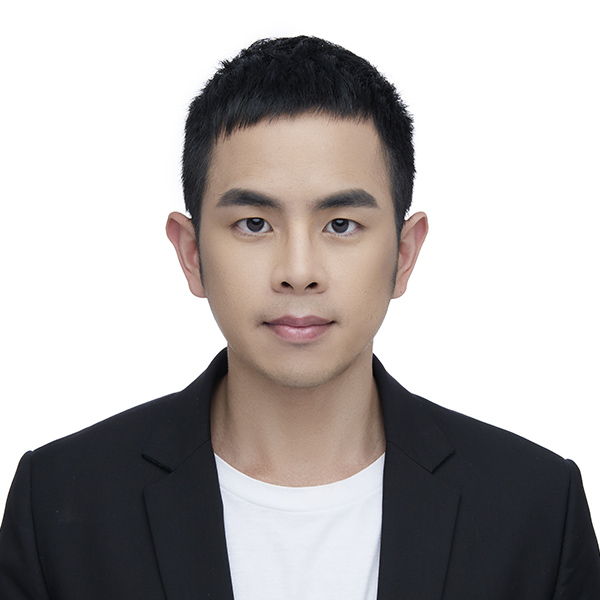 Wei-An Chen
Wei-An ChenWei-An Chen is embarking on his Ph.D. journey in Chemistry & Biochemistry at UC San Diego in the Fall of 2023. With a bachelor's and master's degree in Chemistry from National Cheng Kung University, he has garnered extensive research experience in organic chemistry and chemical biology, working as a research assistant in Prof. Wei-Chieh Cheng's lab at Genomics Research Center, Academia Sinica. Wei-An's research interests have primarily focused on developing natural-product-inspired molecules through combinatorial chemistry and computation to create selective glycosylation modulators that could potentially combat cancer. His work has been recognized through top-tier journal publications and numerous academic awards. Currently, Wei-An is expanding his research to develop next-generation molecules capable of modulating N-glycosylation on metastasis-related proteins and impeding the progression of pancreatic cancer. With his multidisciplinary research experience, Wei-An aspires to delve deeper into the intersection of chemistry and biology such as lipid chemistry in cells, during his Ph.D. studies at UC San Diego. Ultimately, his goal is to make significant contributions to the advancement of human medicine.
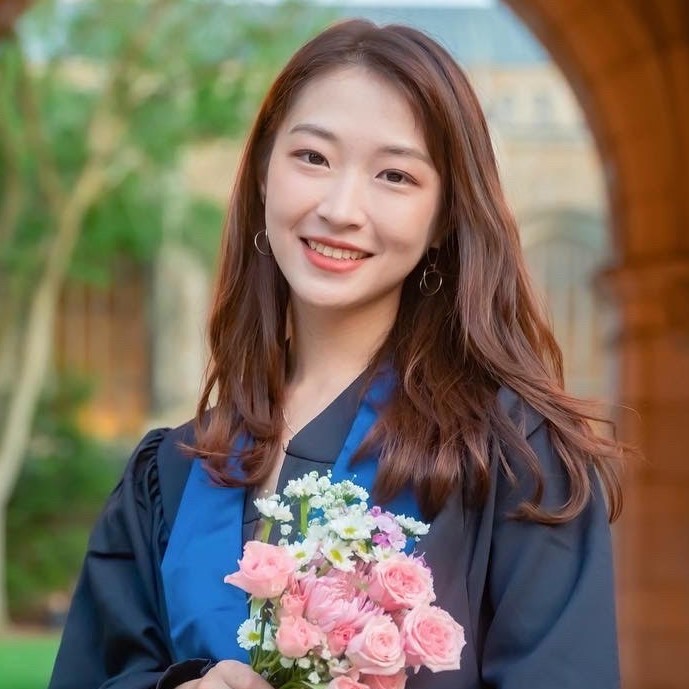 Ya-Ting Chang
Ya-Ting ChangYa-Ting (Blair) Chang will join UC San Diego Biology PhD program with an immunological focus in 2023. During her undergraduate study, she researched T-cell differentiation and metabolism at National Taiwan University. To better understand host-pathogen interactions, she went to Osaka University to conduct research on HBV infection. Ya-Ting received her M.S. degree in Microbiology and Immunology at the University of Michigan Ann Arbor, where she worked with Dr. Philip King on understanding how RAS guanyl releasing protein 1 (RasGRP1) deficiency impacts proliferation and functions of peripheral T-cells. She used ert2-CRE transgenic mice to induce conditional knockout in specific tissues. With this mouse model, she was able to study deficient T-cells without impairing the dynamic of T-cell development in thymus. She found out that loss of RasGRP1 dampens Interleukin-2 (IL-2) production and IL-2 receptor upregulation, causing T-cell cycle arrest. This study suggested that RasGRP1 is important for MAPK signaling and IL-2-dependent autocrine proliferation in T-cells, which might explain why patients with RasGRP1 mutations develop autoimmune diseases and have dysfunctional T-cells. During her PhD study, she hopes to develop her research interest in T-cell biology and explore other immunological topics such as pathogen-induced immunity and cancer immunology.
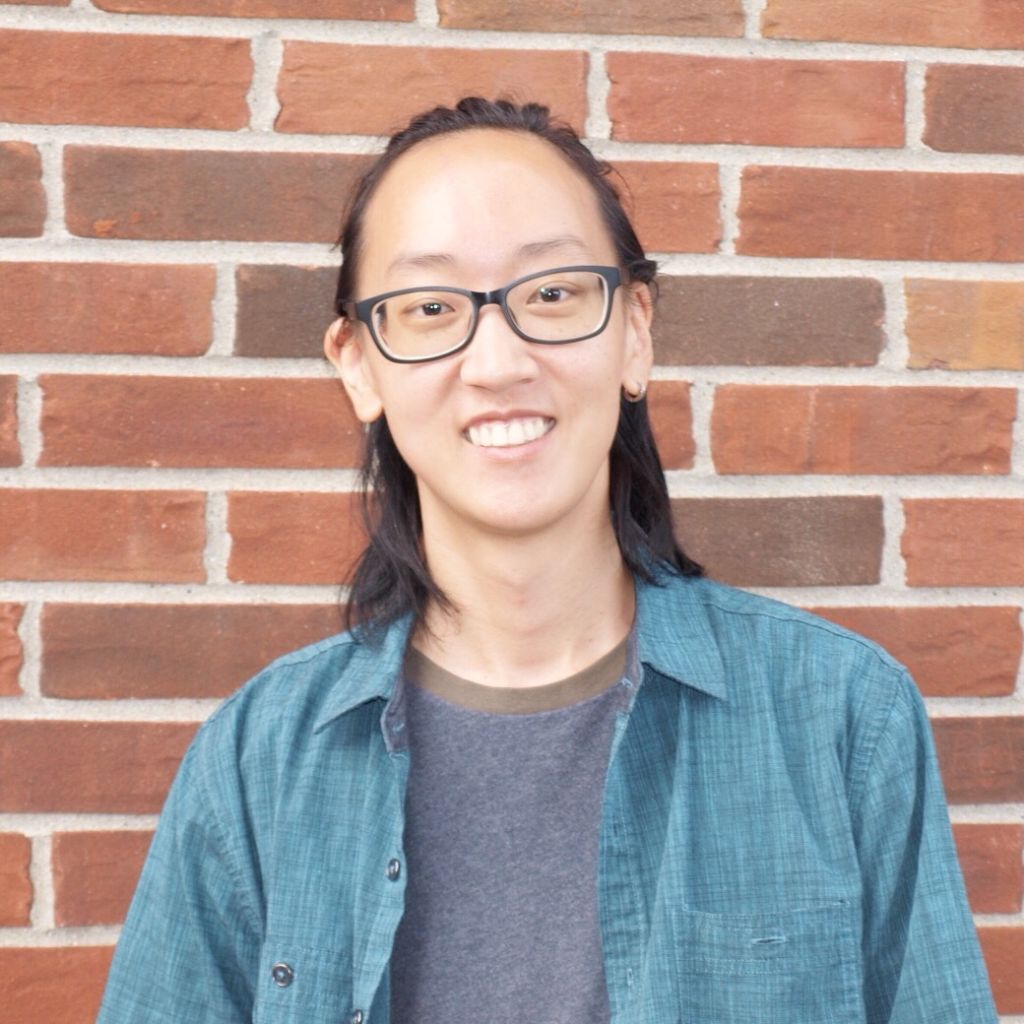 Yi-Lin Chung
Yi-Lin ChungYi-Lin (Eli) Chung is an incoming PhD student in the Department of Communication at UC San Diego. He graduated from Holistic Education School in Miaoli, Taiwan, and earned his BA in Sociology and MA in Theatre Arts at San Diego State University. His research interests explore the contest between traditionalist and subversive attitudes in Japanese arts and media. During his graduate studies, he developed his research focus in Japanese theatre and history through multiple papers and a sponsored field research in Hiroshima, Japan. He specializes in popular cultural products (e.g. anime, manga, and their musical adaptations) and their lineage in classical Japanese theatre. His doctoral research will examine how creators and audiences of Japanese cultural products in these mediums envision their national and ethnic identities at a time when Japan’s geopolitical role in the Asian Pacific vis-à-vis China and Taiwan is rapidly evolving. Taiwan’s social and educational institutions are shaped by fifty years of Japanese rule and continued cultural influence. Born and raised in this environment, Eli believes he can bring a nuanced appreciation for his research subject.
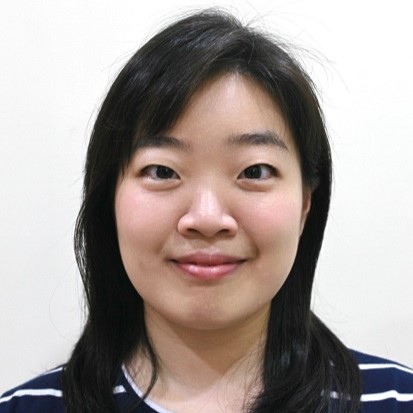 Yu-Chia Huang
Yu-Chia HuangYu-Chia Huang is an incoming student for Fall 2023 in the PhD program in Biological Sciences at UC San Diego. She grew up in New Taipei City, Taiwan. She received her PharmD degree from National Taiwan University and her MS degree from the Institute of Microbiology and Immunology, National Yang Ming Chiao Tung University. Yu-Chia developed an interest in immunology and joined Dr. Ya-Jen Chang’s lab at Academia Sinica during her undergraduate study. She studied the innate immune mechanisms in lung inflammation. During her master’s study, she joined Dr. Chia-Lin Hsu’s lab at National Yang Ming Chiao Tung University. The question that interests her is how the metabolite transporter could affect the phenotypes and functions of immune cells. She focused on the role of metabolite transporter in macrophages within the tumor microenvironment using a mouse model. Her goal for the PhD study in Biological Sciences is to be trained as an immunologist and to study the regulation of immune responses in diseases such as cancer and autoimmune diseases.
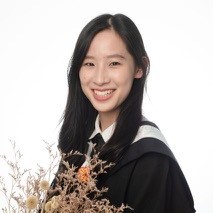 Yu-Chieh Huang
Yu-Chieh Huang Yu-Chieh (Jessica) Huang was born and raised in Taipei, Taiwan. She received the Bachelor’s degree in Japanese Language and Literature from National Taiwan University, and she is going to be a Master’s degree student in Professional Accountancy at UC San Diego Rady School of Management starting Fall 2023. During college, she joined a volunteer group that used limited budget to host a three-day winter camp for underprivileged children. That was when she started pondering the systemic factors that influence financial decisions and she developed her strong interest in auditing and accounting. As a team leader of the Corporation Development Research Center, she studied volatile financial conditions of different corporation and speculate the circumstances occurred behind each. With her eagerness to gain real life accounting experience, she actively sought an audit position in Deloitte Taiwan’s Japanese Service Group. Since most of the clients she encountered were Taiwanese and Japanese companies, she was eager to broaden her horizons beyond Asia, to the globe. After graduate school, she plans to contribute to Rady community by leveraging the abilities she has already developed through her university studies, practical experiences at Deloitte, and active participation in extracurricular activities.
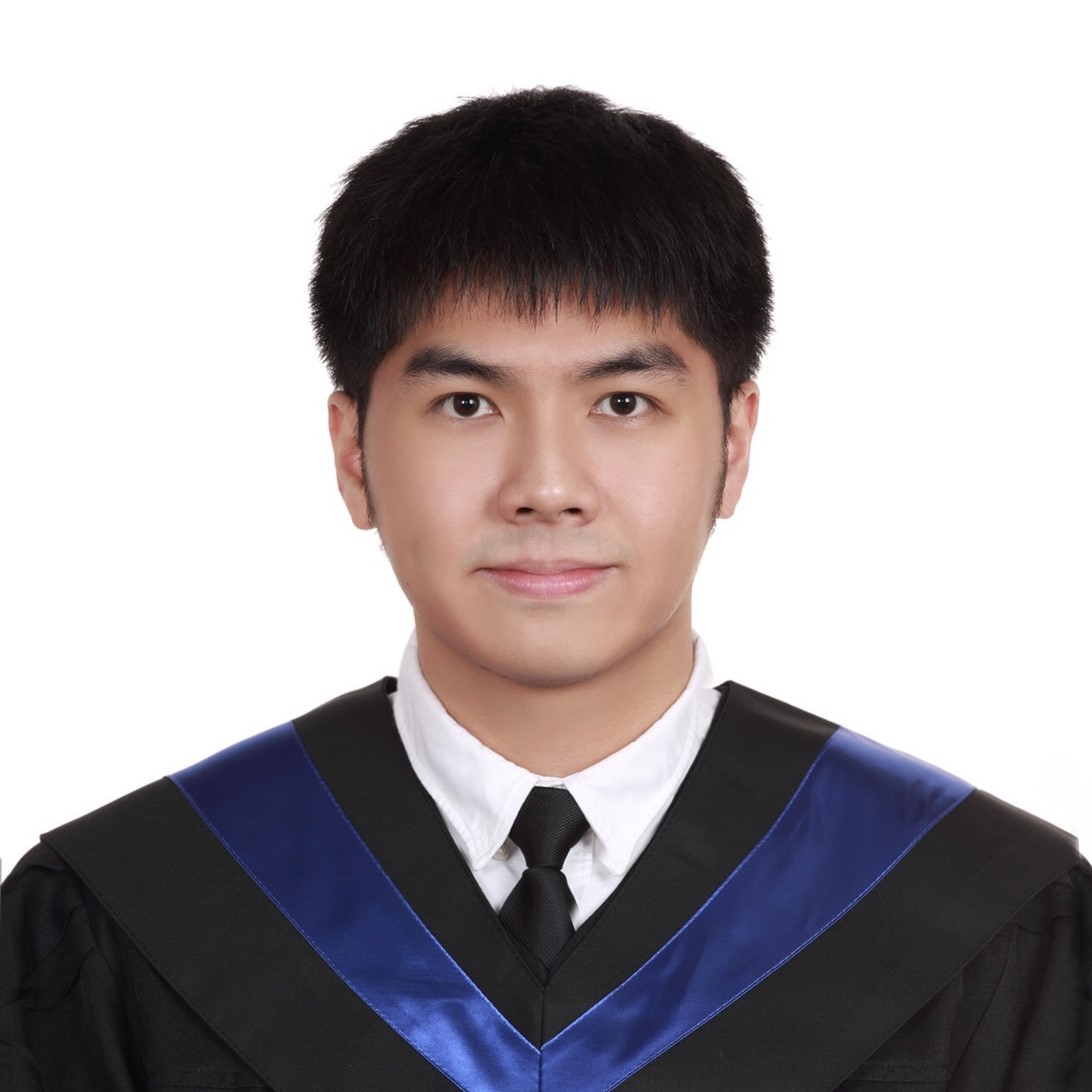 Yu-Hsiang Tseng
Yu-Hsiang TsengYu-Hsiang Tseng is going to be a Ph.D. student in the Department of Electrical and Computer Engineering at UC San Diego. He was born in Taipei, Taiwan, and received his B.S. degree in Electrical Engineering from National Taiwan University. He had research experience in both analog and digital integrated circuits in his undergraduate career. Joining the security group led by Prof. Tsung-Te Liu, he applied machine learning and post‐processing stabilization algorithm to help construct a highly reliable and area-efficient Physically Unclonable Function (PUF). Meanwhile, He also completed a memory-efficient hardware accelerator for sequence alignment under the guidance of Prof. Yi-Chang Lu. His research interests focus on computer architecture and digital VLSI, especially in domain-specific hardware accelerators. He plans to apply to Prof. Yatish Turakhia’s lab and continues his research on hardware acceleration in bioinformatics application during his Ph.D. studies.
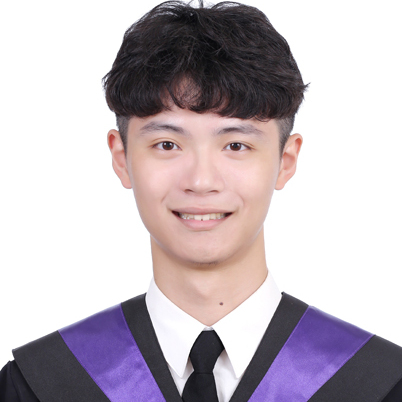 An-Chieh Cheng
An-Chieh ChengAn-Chieh (Anjie) Cheng will be joining the Department of Electrical and Computer Engineering at UC San Diego as a Ph.D. student working with Prof. Xiaolong Wang from Fall 2022. He received his B.S. degree in computer science from National Tsing Hua University in 2018, and his M.S. degree from the Institute of Information Systems and Applications from National Tsing Hua University in 2021. He discovered his passion for research while working as an undergraduate researcher in Prof. Min Sun’s Lab at National Tsing Hua University. During his master’s study, he focused on problems in computer vision and machine learning. He has papers published at international conferences such as the Association for the Advancement of Artificial Intelligence (AAAI) in 2020 and the Conference of Neural Information Processing Systems (NeurIPS) in 2021. His current research focuses on learning 3D perception in a self-supervised manner. The long-term goal of his work is to enable machines to better understand the physical structure of the world with less reliance on human annotations. More information can be found on his homepage.
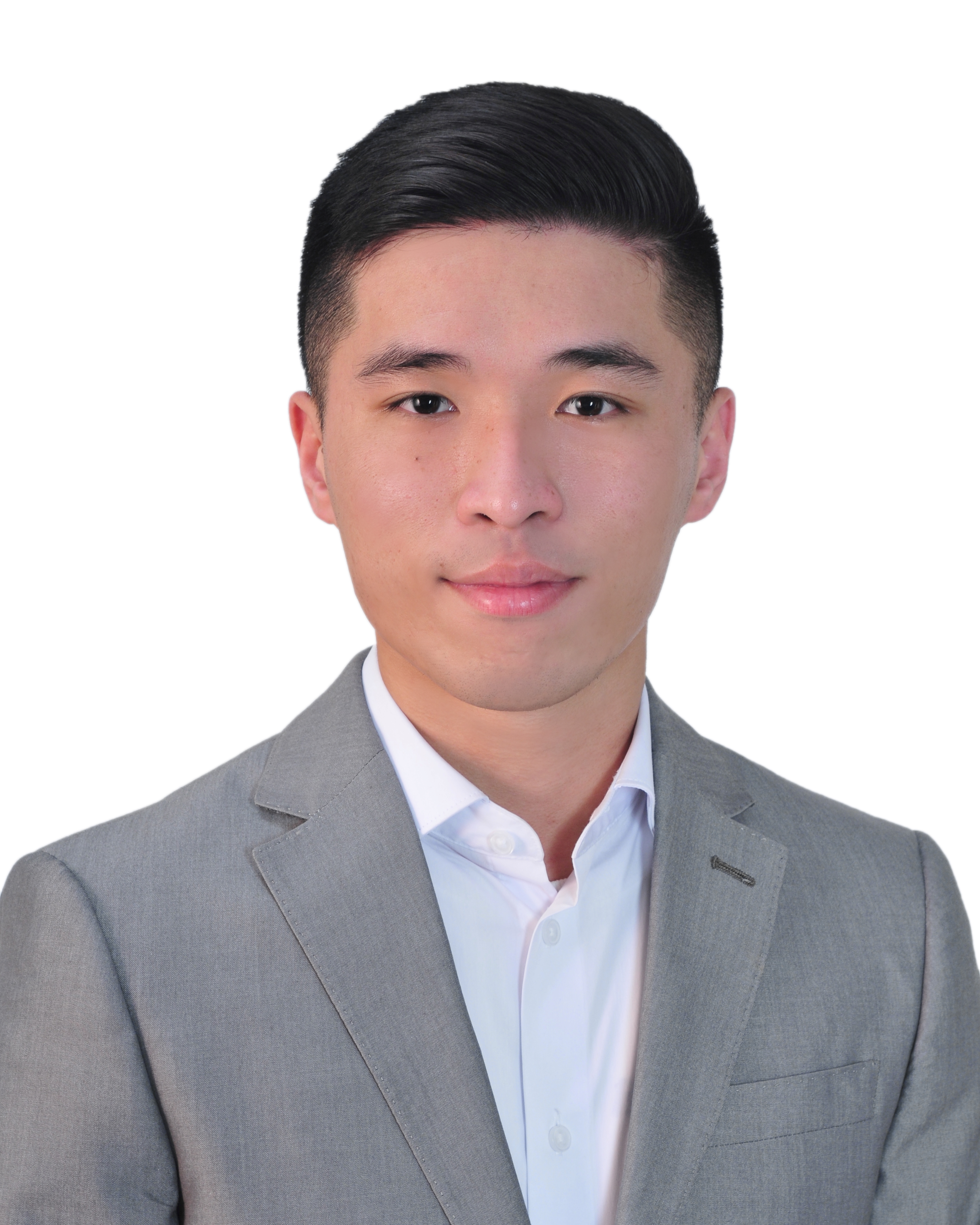 Chun-Fang Hung
Chun-Fang HungChun-Fang (Jeffrey) Hung is going to be a Master's student in Professional Accountancy at UC San Diego Rady School of Management starting Fall 2022. He was born and raised in Tainan. After participating in the Rotary Youth Exchange as an exchange student in Arkansas, he decided to pursue higher education in the US. He received his B.A. degree in Accounting from University of Oregon. During college, he was a member of UO Beta Alpha Psi and participated in the 2022 UO Volunteer Income Tax Assistance program as an income tax preparer for the local community. After completing his undergraduate study, he is looking to focus on data analytics for accounting and taxation to expand his knowledge of taxation and diversify his skill set with data analytics expertise in graduate school. With a potential opportunity to go into the tax accounting field in Summer 2022, he aims to become a well-rounded tax professional with extensive knowledge and strong leadership in public accounting who can lead a team to achieve efficient tax planning. He also hopes he will be able to contribute to UC San Diego’s business networks as an alum in the future. He has also received the Rady Incoming Fellowship for the 2022 academic year.
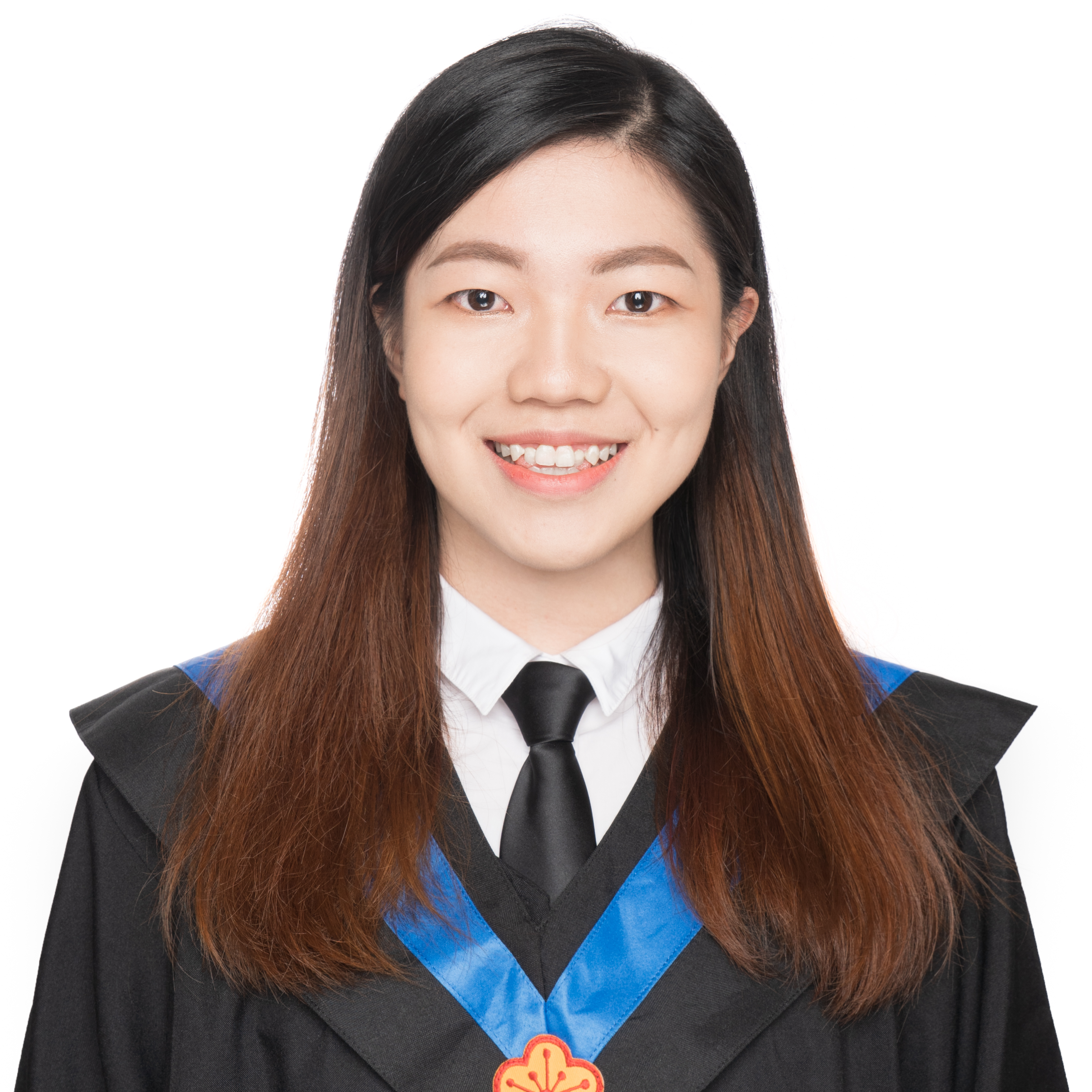 Yu-Peng Hsieh
Yu-Peng HsiehYu-Peng (Melody) Hsieh is a PhD student in Bioengineering at UC San Diego. She grew up in Taipei, Taiwan and received the Bachelor’s degree in Electrical Engineering from National Taiwan University. She was a research intern in Research Center for Information Technology Innovation, Academia Sinica during 2019-2021 and a Research Associate in NTU Centers of Genomic and Precision Medicine, National Taiwan University during 2021-2022. Her research interests focus on using technology to improve human’s health. She participated in three research studies in the field of biomedical engineering, including building a real-world pathological voice detection system with Professor Yu Tsao at Academia Sinica, integrating a reference database for improving 16S ribosomal RNA taxonomic assignment with Professor Eric Y. Chuang, and personalizing the light dosage of transcranial photobiomodulation using deep learning under Professor Kung-Bin Sung’s guidance. In grad school, she hopes to focus on brain-computer interfaces (BCI). She plans to explore new solutions to make BCI applications more translatable in real-life scenarios while preserving high performance.
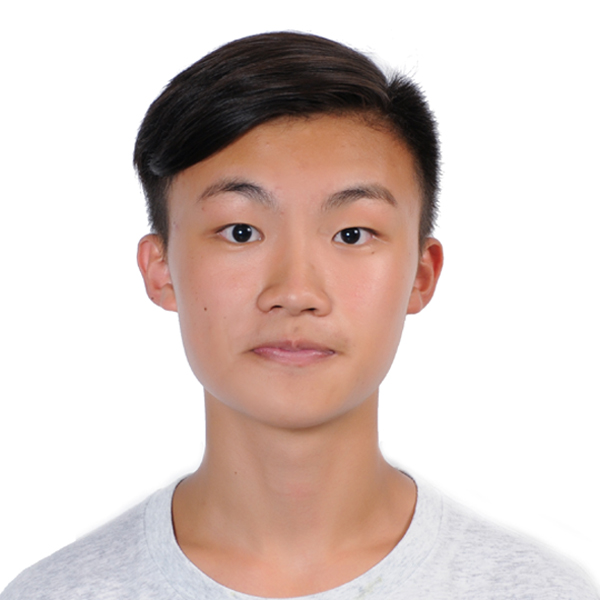 Edward Lin
Edward LinEdward (Ryan) Lin was born and raised in Taipei, Taiwan. He received his B.A. degree in Computer Science and Applied Mathematics and graduated summa cum laude from the University of California, Berkeley. In 2022, he will be working toward a Ph.D. degree in Electrical and Computer Engineering at the University of California, San Diego. He is highly interested in the fields of Machine Learning, VLSI Architectures, Multiprocessor Systems-on-Chips and 3D Chip Architectures. During his undergraduate career, he worked with Professor Wei-Chang Yeh to develop recommendation systems using the Simplified Swarm Optimization (SSO) algorithm and data mining techniques. To improve prediction accuracy, he used machine learning skills to develop algorithms in Python for analysis and in Scikit-Learning tools for classification. In 2022, he also receives a UCSD graduate student fellowship.
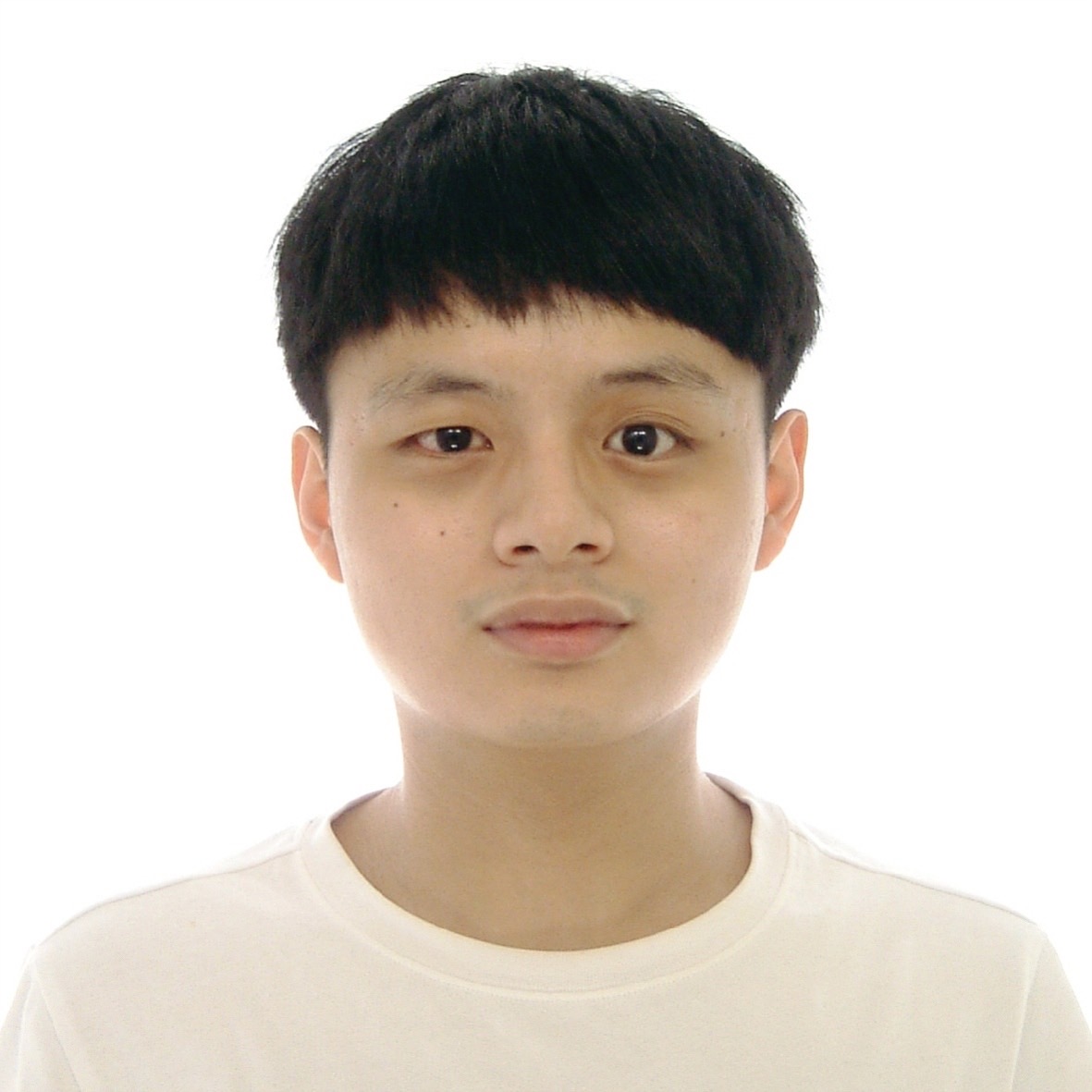 Mao-Ho Wang
Mao-Ho WangMao-Ho Wang will be a Master's student in Business Analytics at UC San Diego from Summer 2022. He was born and grew up in Taipei, Taiwan. He received a B.S degree in Communication Engineering and B.B.A degree in Finance and Cooperative Management from National Taipei University. During college, he found his passion for data when working on a project that used historical future contract records to design a profitable trading strategy. Also, in his undergraduate research, he used Arduino codes to collect and analyze environmental data and put together an automatic sprinkler system for the department garden. Mao-Ho kept developing his data analytics skills when analyzing loan records for better loan management in a bank and visualizing consumer data for product innovation development in a consumer electronics company. Currently, Mao-Ho interns as a full-stack software developer in Wistron Corporation and builds web applications for Performance Management. He plans on using his experience to develop web applications independently and analyze website data to discover business opportunities within the financial industry.
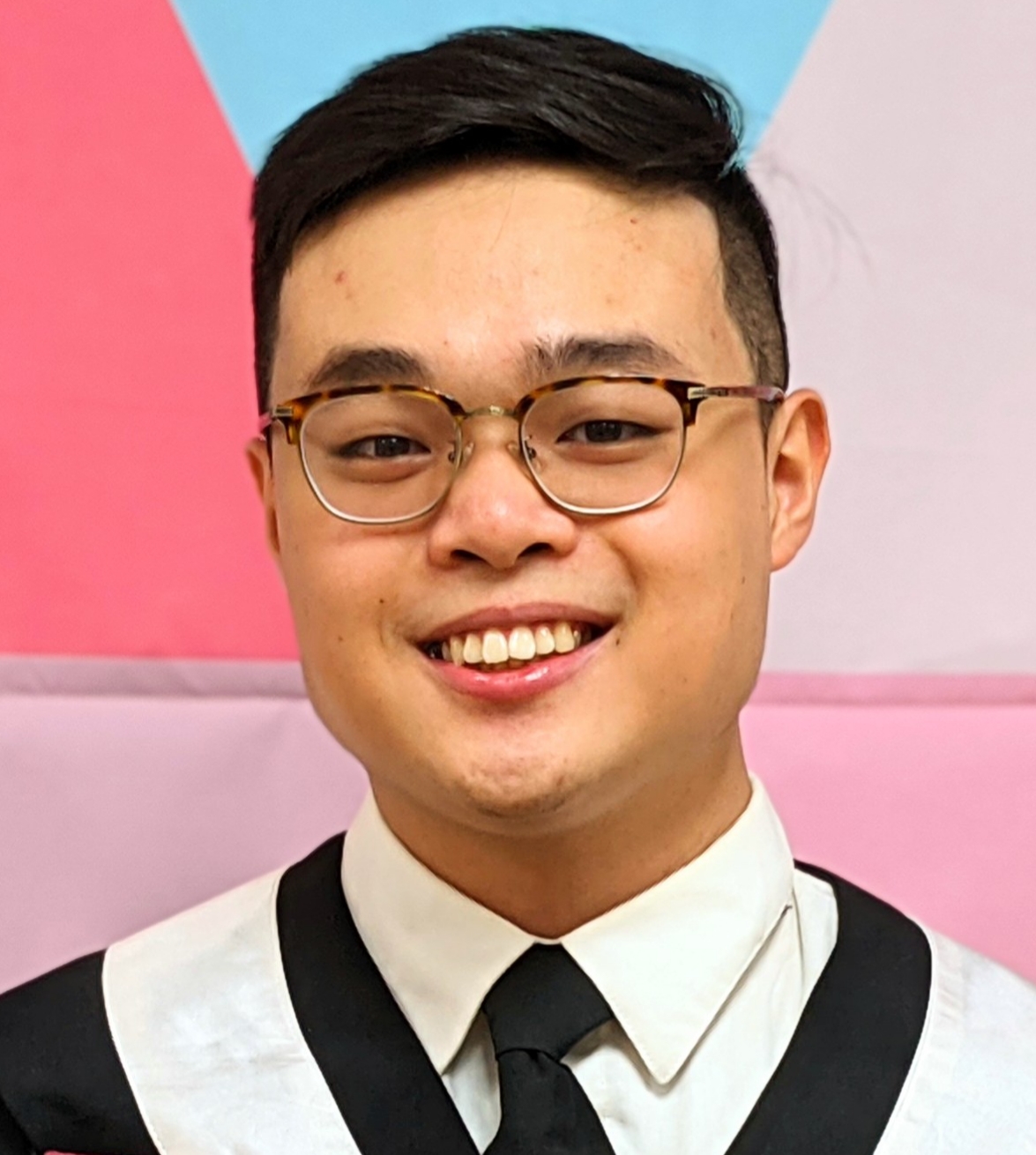 Shang-En Huang
Shang-En HuangComing from a Language Teaching and Linguistics background, Shang-En (Sean) Huang is an incoming Cog Sci PhD student who hopes to explore the amazing features of language, learning and the brain at Dr. Coulson's Brain and Cognition Lab. Specifically, he is interested in utilizing cognitive neuroscience methods to explore psycholinguistic perspectives on multimodal learning, speech filler perception and learning preferences. Previously, as an undergraduate at National Taiwan Normal University (NTNU), his research with Dr. Yeu-Ting Liu focused on EFL speaking fluency training and the proceduralization of speech production skills. Seeking different methods to operationalize his research interests, Sean completed a research internship at the NTNU Neurolinguistics Lab under the guidance of Dr. Shiao-Hui Chan, where he learned cognitive neuroscience methods such as ERP and fMRI. During his internship, he primarily worked on ERP data collection and acquired skills such as EEGLAB and SPM for data analysis. His early academic experiences not only led him to winning the College Student Research Creativity Award from the Ministry of Science and Technology, R.O.C. (Taiwan), but also ignited his interests and passion for the cognitive processes of human communication. More information can be found on their homepage.
Congratulations to Sean Huang, 2022 J Yang Award Recipient & Ph.D. student in Cognitive Science, who will represent UC San Diego at the UC Systemwide Final Round with his research talk entitled, "Soliloquizing: A Self-Practice Towards Better Foreign Language Speaking Fluency".
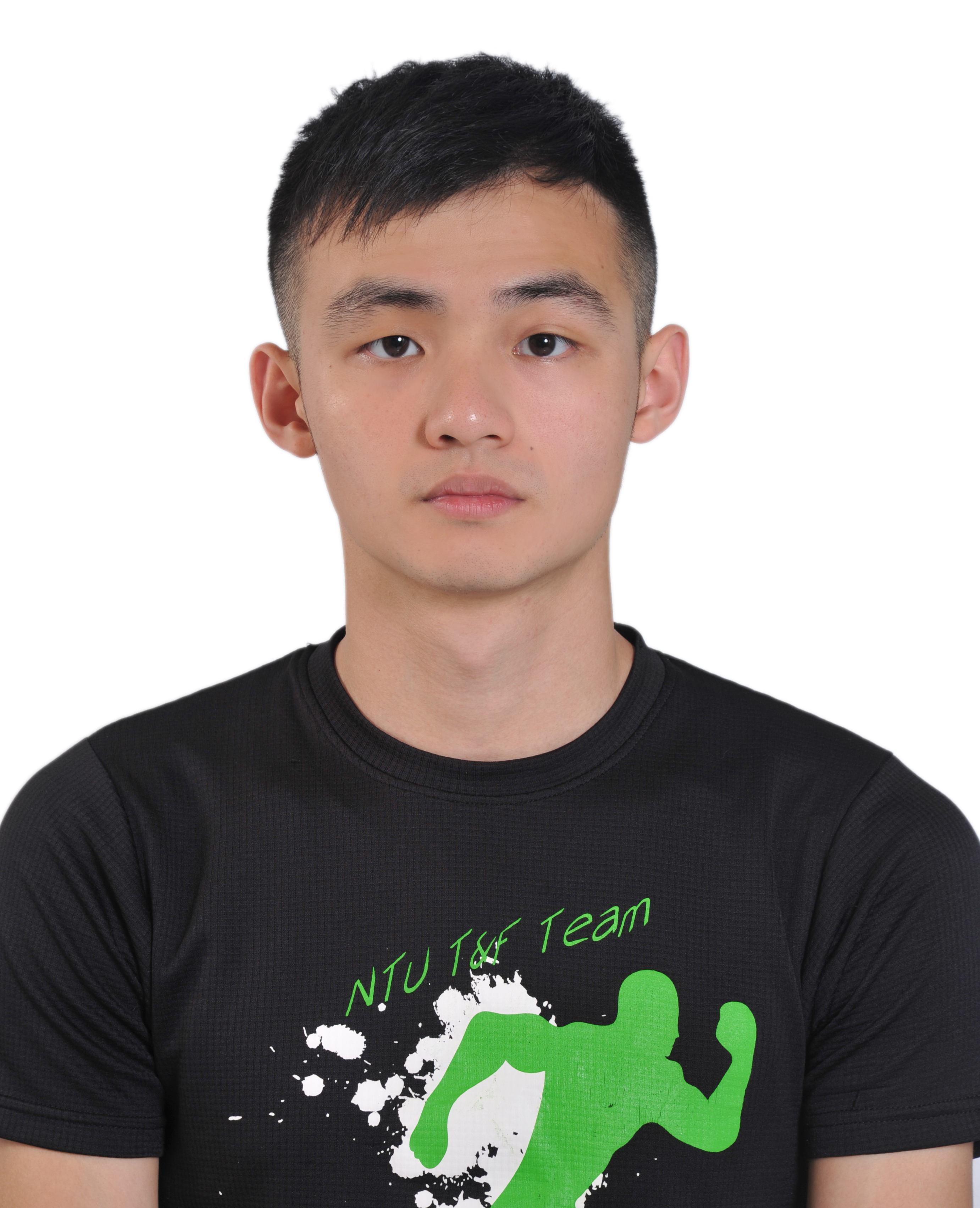 Yu-Hsueh Chen
Yu-Hsueh ChenYu-Hsueh Chen is going to be a Ph.D. student in the Department of Physics at UC San Diego. He is broadly interested in condensed matter theory and its intersection with quantum information and computational approaches. Yu-Hsueh developed his interest in theoretical physics through investigating topological insulators and their applications to photonic crystals in Prof. Guang-Yu Guo’s group at National Taiwan University (NTU). After receiving his Bachelor's degree, he joined Prof. Ying-Jer Kao’s group at NTU to study topological orders using tensor networks. There, he proposed a unified scheme to detect the transition between Abelian and non-Abelian topological orders and used the symmetric tensor network to probe the excitation properties of the spin-1 Kitaev model. Yu-Hsueh's exceptional academic and research achievements made him complete his Master's degree in one year. Besides, he won the NTU-CTP Best Student Paper Award from the Center for Theoretical Physics at the National Taiwan University in 2022. He plans to explore the strongly-correlated system both in and out of equilibrium during his Ph.D. studies.
Chi Fang is a Ph.D. student in the Department of Political Science at UC San Diego. He grew up in Taiwan and received his B.A. and M.A. in Diplomacy at National Chengchi University. After his obligatory military service at Matzu, he joined the Institute of Political Science, Academia Sinica, where he decided to pursue a doctoral degree. Chi developed his research interests in international relations and game theory through his internship with foreign services and studies at UC Berkeley. His research explores how interstate competition interacts with domestic politics. Specifically, he examines how domestic divisions undermine states’ bargaining power amid international competition. Currently, he is working on several projects regarding international politics. First, he used survey data to examine whether and how the US public will support armed intervention when China initiates militarized conflicts against the US allies in East Asia. Second, he designed game-theoretical models to evaluate the effects of China’s gray zone coercion and Russia’s hybrid warfare. Finally, he studies the pattern of defense cooperation agreements in the Indo-Pacific and the EU to examine states’ efforts to deter challengers and to maintain international order. In the long run, he expects to contribute to the development of international relations theory and East Asia foreign policy planning.
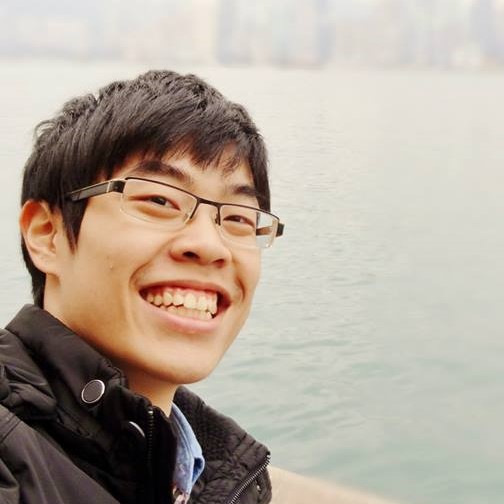
Hao-Wen (Herman) Dong is a PhD student in Computer Science and Engineering at UC San Diego working with Prof. Julian McAuley and Prof. Taylor Berg-Kirkpatrick. His research interests lie at the intersection of music and machine learning, with a recent focus on music generation, audio synthesis and representation learning for music. His graduate study focuses on advancing machine learning techniques for music and audio. During his first two years at UC San Diego, Herman worked on deep learning models for automatic instrumentation, and he also developed an open source Python library for music generation. Through his research, his goal is to lower the barrier of entry for music composition and democratize music creation. Previously, Herman did a research internship in the R&D Division at Yamaha Corporation, working on deep neural network based musical instrument synthesizers. Before that, he was a research assistant in the Music and AI Lab directed by Dr. Yi-Hsuan Yang at Academia Sinica, where he worked on AI-assisted music generation and fundamental machine learning. He received his bachelor’s degree in Electrical Engineering from National Taiwan University. More information can be found at his homepage (https://salu133445.github.io/).
Chih-Fan (Rich) Pai was born in Richmond, Canada and grew up in Taiwan. He received the B.S. degree in electrical and computer engineering from National Chiao Tung University, Hsinchu, Taiwan, in 2018, and the M.S. degree in signal processing and communication engineering from National Taiwan University (NTU), Taipei, Taiwan, in 2020, under the supervision of Professor See-May Phoong. In 2021, he will be working toward a Ph.D. degree in electrical and computer engineering at the University of California, San Diego (UCSD), CA, USA. He is broadly interested in problems with strong and elegant mathematical foundations, including, but not limited to: high-dimensional signal and information processing with applications in communications and machine learning. In 2020, he won first Place in Youth Thesis Award from Chinese Institute of Electrical Engineering, Taipei, Taiwan, and Best Master Thesis Award from Graduate Institute of Communication Engineering, NTU. He also received UCSD graduate student fellowship in 2021.
Hsin-Ting Li is going to be a Ph.D. student in Ocean Biosciences program at the Scripps institution of Oceanography (SIO) at UCSD starting Fall 2021. She obtained a master’s degree in Applied Ecology at Kiel University and a bachelor degree in Life Sciences at National Chung Hsing University. She discovered her passion in biological oceanography while working as a research assistant in Dr. Tung-yuan Ho’s Lab at Academia Sinica. Her research interests lie in the interaction between micronutrients and phytoplankton and the variation in marine food webs that result from changes in phytoplankton ecophysiology. She intends to conduct studies, in the laboratory of Dr. Andrew E. Allen at SIO, on the molecular mechanisms utilized by phytoplankton to acquire and assimilate trace metals and major nutrients. More generally, the genetic mechanisms which regulate associations between diatom phytoplankton and nitrogen fixing microbes (diazotrophs) and related impacts on food webs that sustain fisheries are the focus of her future studies.
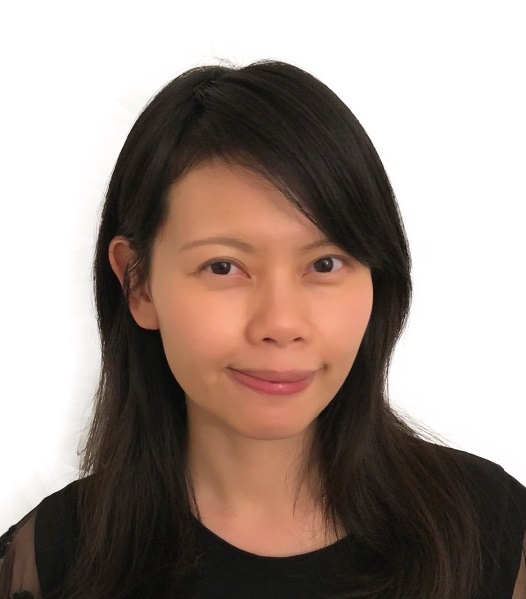
Wan-Ting (Anita) Hsu is a Master's student in Business Analytics at UC San Diego. She received the B.A. degree in Economics from National Tsing Hua University and the M.A. degree in Industrial Relations and Managing Human Resources from Warwick Business School. Afterward, she joined HR Process Integration and Data Analytics team in TSMC. As an analyst, she engaged in headcount management, cost-benefit analysis, HRIS transition, and attrition prediction. Through her experiences, she has found a strong passion for using data as a tool to transform HR domain knowledge into meaningful strategies in workforce planning, talent acquisition, and employee development. Her career aspiration is to change the landscape of HR from operational partners to strategic partners who can utilize people analytics to optimize the impact of HR policies on the employees and the business.
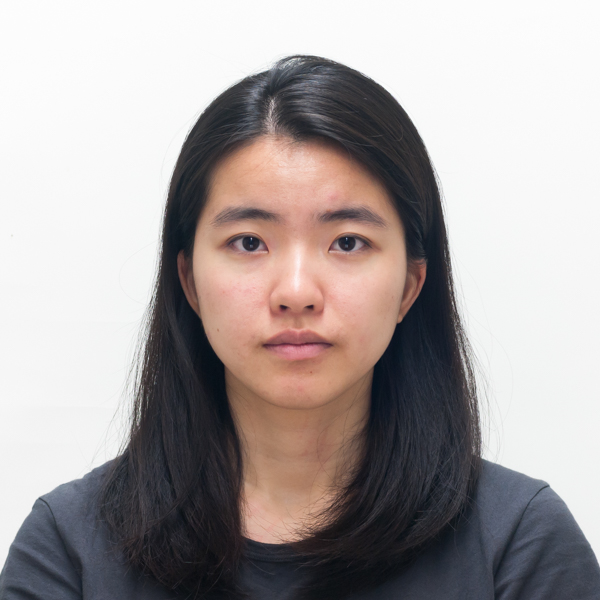
Jo-Hsien Yu is a PhD student in the Division of Biological Sciences. She grew up in Taipei, Taiwan, and earned her B.S. from National Taiwan University. During college, she once studied abroad at University of North Carolina at Chapel Hill where she was first exposed to scientific research. In Sabrina Burmeister lab where the neuronal and hormonal mechanism of behaviors reveal the evolution of ethology, she investigated sex differences in the spatial learning of túngara frogs. The research project strengthened her curiosity in animal behavior and the underlying neurobiology. When returning to NTU, Jo-Hsien joined Shih-Kuo Chen lab which studies the impacts of light on various aspects of animal physiology, cognition, and behaviors. She worked on establishing the pathway in which retinal light inputs modulate social interaction and oxytocin release, and the experience cemented her interest and training in neural circuit studies. In grad school, she hopes to focus on behavioral neuroscience. She plans to use vertebrate models to explore the neural mechanisms underlying their natural behavior repertoires, which will not only expand basic science but also provide insights into how diseases and mental disorders develop when the circuits go awry.
Chin-Ta (Kiida) Lai is currently a Ph.D. student in Structural Engineering under the supervision of Professor Joel Conte. He assists in the upgrade project of the world largest outdoor shake table (UC San Diego Large High Performance Outdoor Shake Table)— from 1 to 6 degrees of freedom. Equipped with the significant experience and knowledge that he developed while working at the National Center for Research on Earthquake Engineering (NCREE) in Taiwan, he is now responsible for several challenging tasks in the LHPOST upgrade project. This includes definition of the acceptance and characterizations tests of the upgraded LHPOST (LHPOST6), system identification to calibrate the physical parameters of the LHPOST6, advanced modeling of the LHPOST6 and its control system (including specimen-table interaction) for the purpose of pre-test simulation and for further improving its control system and tracking performance. Chin-Ta specializes in both structural and mechanical engineering. Therefore, he can conduct high-quality structural experiments while maximizing the capacity and performance of the test facility itself, which provides a comprehensive approach to each project. Aside from his high-quality and innovative research and studies, he is also enthusiastic about computer programming. Based on his software development work in MATLAB and Simulink, he has developed toolboxes using Python to share his research work and help others do analysis with robust and reliable software.
Ping-Chieh is a first-year PhD student in Management with a concentration in Innovation, Technology and Operations at Rady School of Management. She obtained her bachelor’s degree in Economics from Soochow University in Taiwan and received a master’s degree in Management and a master’s degree in Statistics from Arizona State University. During her master’s study, Ping-Chieh completed a thesis on linear mixed-model approximations and a compilation of applied projects on marketing, organizational behavior, strategic management, supply chain management, and machine learning. Additionally, she is a member of academic excellency in Phi Tau Phi Scholastic Honor Society, Beta Gamma Sigma International Honor Society, and Alpha Iota Delta International Honor Society. Currently, observing the economic disruption and operational risks brought by COVID-19, Ping-Chieh is interested in modeling such impact and identifying potential latent variables that may provide insights for future operations research.
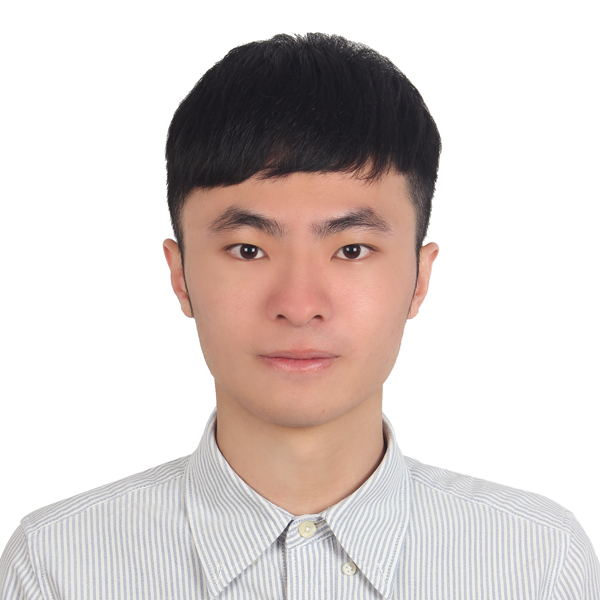
Po-Han (Patrick) Chen received his B.S. degree in electrophysics from National Chiao Tung University, Hsinchu, Taiwan in 2018 and the M.S. degree from Institute of Electronics, National Yang Ming Chiao Tung University, Hsinchu, Taiwan in 2021. During his study at National Yang Ming Chiao Tung University, he focused on fully integrated power management integrated circuit (PMIC) for energy- efficient circuits and solar energy harvesting interface. Early in his research career, he worked on a fully integrated switched-capacitor DC-DC converter for mW-order SoC applications. In this project, a new output ripple modulation technique is implemented to control the output voltage ripple under different loading conditions, which can increase the conversion efficiency of the system. Since September 2021, he has been pursuing the Ph.D. degree at the Department of Electrical and Computer Engineering, University of California San Diego, La Jolla, CA, USA. He would join iPower3Es lab led by Prof. Hanh-Phuc Le by September 2021, and will continue to work on power electronics projects, including hybrid DC-DC converters with high conversion ratio for data center applications. The goal of this project is to address challenges, such as excessive energy consumption and large physical footprints, when implementing data centers for cloud computing or streaming services.
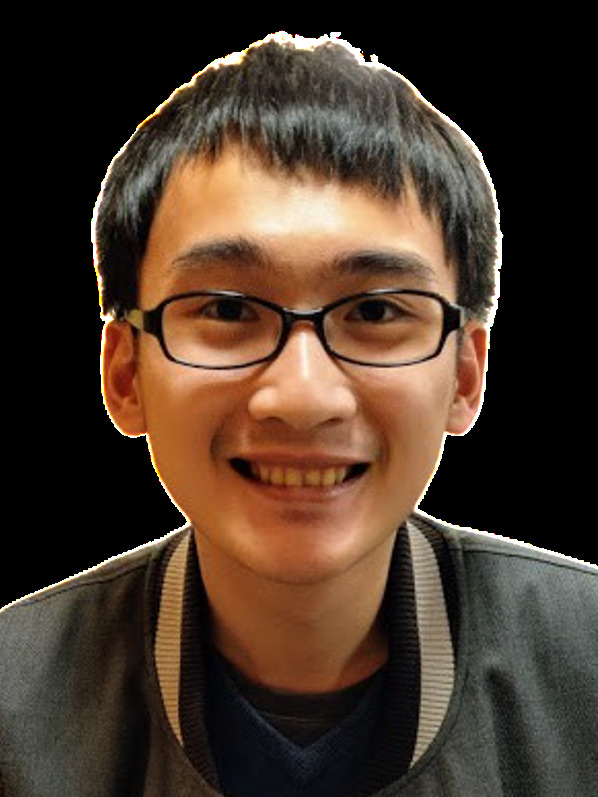
Ting-Yu (Tim) Lu is currently a researcher in Department of Chemical Engineering at National Taiwan University in Prof. Jiashing Yu’s lab. He will be joining the Materials Science and Engineering Program at UC San Diego as a Ph.D. student in Prof. Shaochen Chen’s lab from Fall 2021. Ting-Yu got a master's degree in biomedical engineering from National Tsing Hua University, Taiwan under the supervision of Prof. Hsin-Cheng Chiu. His past research focus on biomaterials and drug delivery. He has published five journal articles as first author. His work has been accepted for presentation at international conferences such as European Materials Research Society (E-MRS). Besides, he received the best presentation award from Taiwan Institute of Chemical Engineers (TwIChE) in 2019 and 2020. He also has cumulative 2 years’ teaching assistant experience in undergraduate course. Currently, his research interests include 3D printing and stem cells for tissue engineering such as bioprinted tumor microenvironments model and spinal cord injury. He plans on combining his past research experience about nanomedicine and 3D printing hydrogel systems to accelerate tissue regeneration. The long-term goal of his work is to use 3D printing to overcome the technical limitations of large scale manufacturing processes and integrate engineering and medicine for biotechnology to solve the clinic solutions for human health.
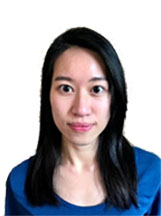 Ya-Chien (Vanessa) Chang
Ya-Chien (Vanessa) ChangYa-Chien (Vanessa) Chang is currently a first year Ph.D. student in Computer Science and Engineering at UC San Diego. Ya-Chien got a master's degree in applied mathematics from National Tsing Hua University. She is interested in investigating learning-based methods with control-theoretic foundations in the context of various autonomous systems. In her first year of the Ph.D. program, her work was published in the 33rd Conference of Neural Information Processing Systems (NeurIPS) in 2019. Building on the initial success with safe and reliable learning for control, Ya-Chien is currently exploring various directions for more challenging tasks in autonomy. As the lack of safety guarantee has become important open challenges in the development of reliable autonomous systems, her long-term goal is developing practical and reliable intelligent control methods that can enable the wide and safe applicability of autonomous systems in the foreseeable future. In addition to being dedicated to research, she is the president of UCSD Taiwanese Graduate Student Association for 2020-2021.
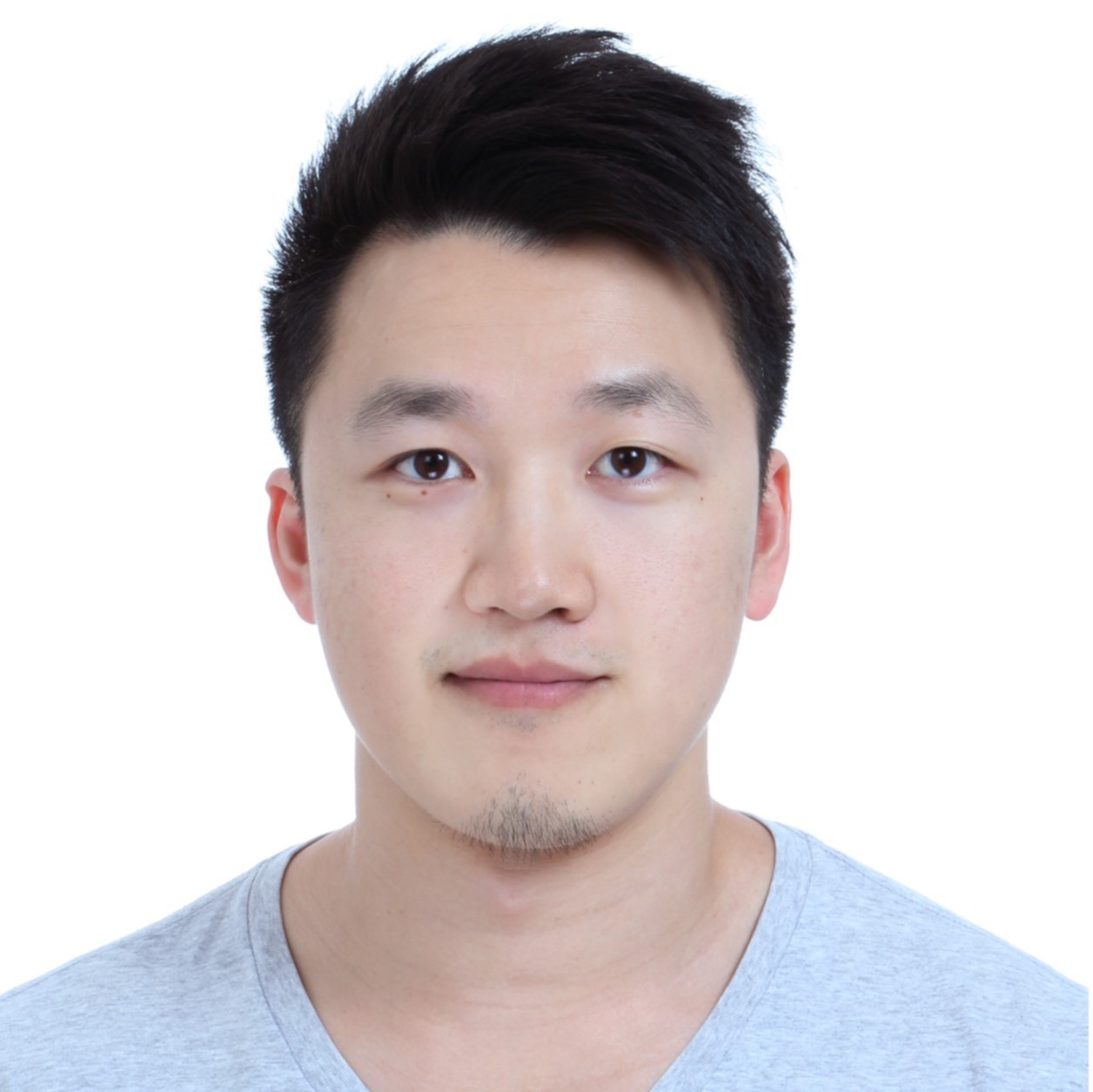 Pin-Chung (Tony) Cheng
Pin-Chung (Tony) ChengPin-Chung (Tony) Cheng is a first-year Ph.D. student in the Division of Biological Sciences at UC San Diego. He grew up in Taichung, Taiwan and enjoys the beautiful nature and tasty local foods in his hometown. He received his M.D. degree from Kaohsiung Medical University and completed his internship in Chung-Ho Memorial Hospital. Feeling limited by the current medical technology and the need to better understand diseases, Pin-Chung went on to study neurodegenerative disease in Yun-Ru Chen Lab at Academia Sinica, Taiwan. There he developed his skills in biochemistry and molecular biology and applied them to investigate the role of misfolded protein in ALS and Alzheimer’s disease. Afterwards, Pin-Chung completed a M.S. degree in stem cell biology and regenerative medicine at University of Southern California, where he studied how metabolism can influence muscle stem cell aging in Joseph Rodger Lab. Currently at UC San Diego, Pin-Chung is developing an interest in bioinformatics and the rapidly advancing field of single-cell genomics. He plans on using a novel single-cell assay and computational analysis to identify genetic mutations and pathways that drive cancer growth. He believes by applying these single-cell technologies, we can build a massive library of disease database that will help us gain remarkable insight into disease mechanisms and lay the foundation for developing precision medicine that will improve patient outcome.
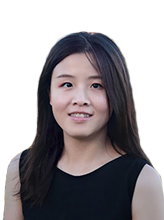 Hsuan-lin (Charlene) Her
Hsuan-lin (Charlene) HerHsuan-lin (Charlene) Her is a Ph.D student in Bioinformatics and Systems Biology. She grew up in Taipei and received M.D. from Taipei Medical University. During college, she joined Yu-Wei Wu's lab at Graduate Institute of Biomedical Informatics. There she explored how bioinformatics can potentially provide insight to severe clinical problems such as antibiotic resistance. She believes that the advance of genome sequencing technology will make revolutionary changes to medical practices. In grad school, she plans to explore the functions of RNA-binding protein and find novel disease mechanisms.
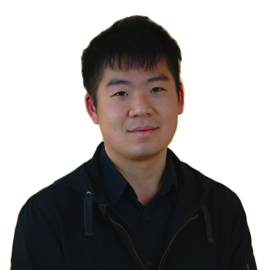 Ching Hwa (Hank) Ho
Ching Hwa (Hank) HoChing Hwa (Hank) Ho was raised in Hsinchu, Taiwan. He graduated from National Tsing-Hua University, and received Bachelor of Science degree in 2014. Later he entered National Taiwan University for Master of Science degree, and completed his thesis under Dr. Chun-hsien Chen’s supervision in 2016. After obligatory military service, he then served as a research assistant in Dr. Chia-Chun Chou’s research laboratory in National Tsing Hua University. He came to United States in 2019 for pursuing doctoral degree in chemistry, and joined Dr. Francesco Paesani’s group in 2020. Ching-Hwa Ho’s research interests include charge transport phenomena in nano-scale materials, which was inspired by his previous research topics: molecular electronics and non-adiabatic molecular dynamics. Ching-Hwa Ho also has cumulative 8 years’ practical experience in chemistry teaching since 2010. He is passionate about conveying complex knowledge with easy languages, and arousing students’ interest by seemingly simple questions.
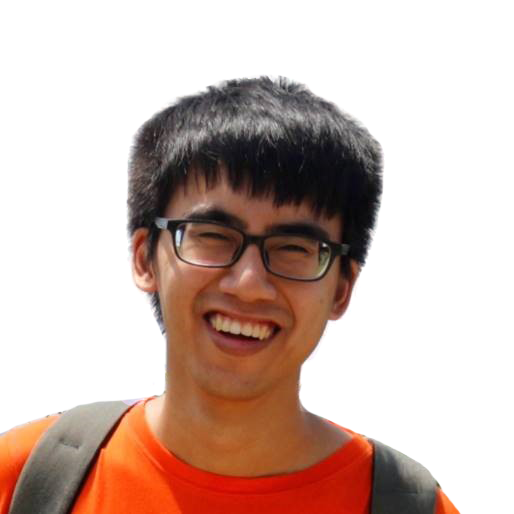
Ting-Chou (James) Lin is currently a second-year Ph.D. student in the Department of Computer Science and Engineering at UC San Diego. He was born and grew up in Taiwan. He received the B.S. degree in Electronics Engineering from National Chiao Tung University and the M.S. degree in Electronics Engineering from National Taiwan University under the supervision of Prof. Yao-Wen Chang. He worked as a software engineer at Cadence Design Systems, Taipei for one and a half years. He has published two conference papers at International Conference On Computer-Aided Design (ICCAD). Currently, he works with Prof. Chung-Kuan Cheng and focuses on a multi-objective cost-driven path-finding problem subjecting to complex constraints. He is one of the main developers of the open-source project OpenROAD. His current research interests are, including but not limited to, search and optimization, reinforcement learning, and design automation. As for future research directions, he would like to apply reinforcement learning for playing the game of design automation, where a simultaneous multi-objective optimization scheme and a sophisticated reward approximation function are needed.
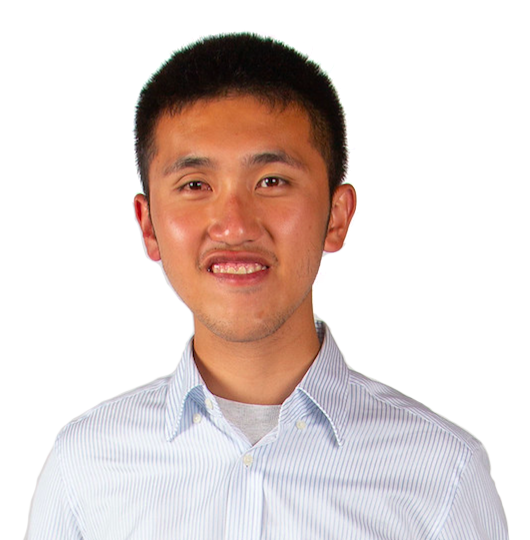
Chung-Yueh (Jeremy) Lin is a first-year Ph.D. student in the Neurosciences Graduate Program in UC San Diego School of Medicine. Jeremy was born and grew up in Taiwan, which was earlier called Formosa, meaning a beautiful island in Portuguese. He received his B.S at MIT, participated in International Chemistry Olympiad, performed cell biology research in the Harvey Lodish Lab at the Whitehead Institute about lipid metabolism in red blood cell development, and neuroscience research in Nobel laureate Susumu Tonegawa’s Lab at MIT about hippocampal circuit for social memories. From these experiences, Jeremy has developed broad interests ranging from molecular neurobiology to systems neuroscience, and has built a strong multi-disciplinary academic background required for advanced neuroscience research. Jeremy intends to devote himself to elucidating the mechanisms of the memory systems. He will focus on exploring two cutting-edge research topics in the rotations through the Neurosciences laboratories. The first potential project is to study the relationship between (epi)genomics and memory storage strategy in the hippocampus, and the second one is to study the functions of cortical-hippocampal circuits during memory formation by advanced techniques. Jeremy also took initiatives in several academic student organizations in neuroscience and computer sciences as he realized that the future neuroscience research will involve different skill sets. In the long run, he expects to take leadership roles in large-scale interdisciplinary research regarding learning and memory systems and neurodegenerative diseases.
Yun-An (Ann) Lin is a PhD student in the Department of Structural Engineering at UC San Diego. She grew up in Hsinchu, Taiwan and graduated from the National Chiao Tung University with a bachelor’s degree in Civil Engineering. She developed an interest in structural health monitoring through her participation in undergraduate research projects. Shortly after starting her graduate studies at UCSD, she joined the ARMOR (Active, Responsive, Multifunctional, and Ordered-materials Research) Lab to work with Prof. Ken Loh and soon found tremendous interests in designing next-generation thin film sensors for structural and human health monitoring applications. Her first research project sponsored by the U.S. Army Corps of Engineers, where she designed and characterized nanocomposite sensing skins for detecting and localizing damage in U.S. Army Corps structural assets. At the same time, she also worked on an Office of Naval Research project focusing on developing fabric-based pressure sensors for wounded warfighters and amputees, specifically, on mapping pressure distributions and hotspots in socket prostheses. This work was in collaboration with LIM Innovations, a socket prosthesis company based in San Francisco, CA and was where she interned during summer of 2019. Her PhD thesis research will build on her previous accomplishments, where she will design, test, and deploy wearable nanocomposite sensors for human motion and physiological monitoring. The long-term goal of her work is to develop and then leverage these wearable physiological sensors as a platform for integrating other future functionalities and that these technological advancements will find broad uses in healthcare, military, the entertainment industry, the arts, and consumer settings.
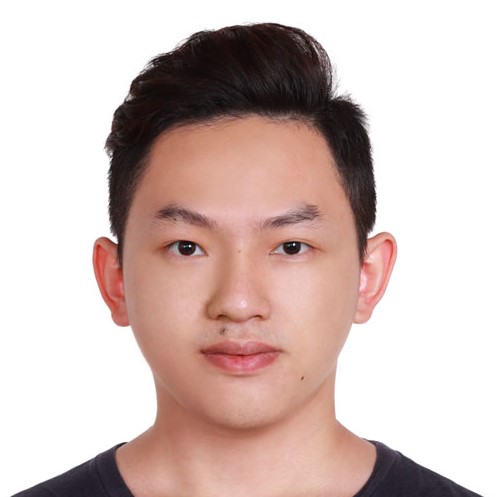 Wen-Chin (Brian) Liu
Wen-Chin (Brian) LiuWen-Chin (Brian) Liu was born in Hualien, Taiwan, R.O.C. He received the B.S. degree in electronic and computer engineering from National Taiwan University of Science and Technology, Taipei, Taiwan, in 2017; the M.S. degree in electrical engineering from National Taiwan University, Taipei, Taiwan, in 2019. He is currently working toward a Ph.D. degree in electrical and computer engineering at the University of California, San Diego, CA, USA. His current research interests include high-frequency modeling, analysis, and constant-on time control strategies of dc-dc power converters for point-of-load applications, power management of integrated circuits, high-power-density isolated dc-dc resonant converter, high-power high-efficiency dc/dc and ac/dc and battery management system. All the researches aim to achieve better energy conversion with compact size enabling future life while saving energy waste. In 2016 and 2017, Wen-Chin actively engaged in IEEE international future energy challenge competition, with 5th and 3rd place, respectively. Besides, he received the best thesis award from the EE department of National Taiwan University (NTU) in 2019, University of California San Diego (UCSD) graduate student fellowship in 2019.
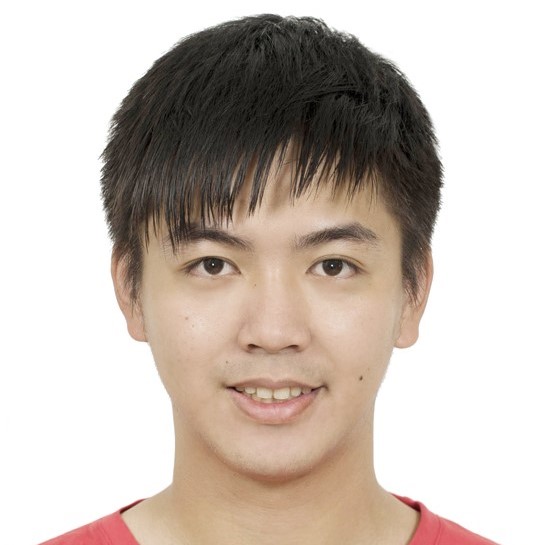 Yueh-Hua (Kris) Wu
Yueh-Hua (Kris) WuYueh-Hua (Kris) Wu is currently a researcher at Academia Sinica, Taiwan. He will be joining the Computer Science and Engineering Department at UC San Diego as a Ph.D. student from Fall 2020. He has graduated from National Taiwan University with a bachelor’s and a master’s degree in Electrical Engineering and Computer Science, respectively. Yueh-Hua developed his research interest in Artificial Intelligence since college and his work has been accepted for presentation at international conferences such as International Conference on Machine Learning (ICML) and Association for the Advancement of Artificial Intelligence (AAAI). Yueh-Hua is interested in solving empirical problems related to reinforcement learning and imitation learning, including sample inefficiency and imperfect demonstrations. His work, Imitation Learning from Imperfect Demonstration, was done when he interned at RIKEN Advanced Intelligence Project (AIP), Japan, under the supervision of Prof. Masashi Sugiyama. Yueh-Hua worked on low-cost inverse reinforcement learning, which enables reinforcement learning approaches to directly learn the preference of the designers from demonstrations without additional labeling effort.
In accordance with applicable Federal and State law and University policy, the University of California does not discriminate, or grant preferences, on the basis of race, color, national origin, religion, sex, disability, and/or other protected categories. Initiatives are open to all eligible members of the UC San Diego campus community and does not discriminate against, or grant preferential treatment to, any individual or group on the basis of race, color, national origin, religion, sex, disability, and/or other protected categories.